Report From The Midwest
Since 2007 John Kohring has been working on a project called Report from the Midwest, which consists of scenes that he encounters by chance while just walking around in Midwestern neighborhoods, natural settings, and popular gathering places. Influenced by the thinking of 19th century French Realist painters, he looks for the humanity in our ordinary surroundings. Report from the Midwest is not a political statement. Instead, it is a portrait of everyday life in early 21st century America. This is an America that can be beautiful and ugly, insecure and bold, playful and sad, vulgar and dignified.
Charles Baxter contributes to Report from the Midwest by writing short reflections on each of its ten themes. The prose may vary from theme to theme. For example, in some cases he speaks in the first person; in others, he speaks in the third person. For the Them That's Got theme, Baxter employs irony. The language for the Industry theme is in the form of a Shakespearean sonnet.
Report from the Midwest brings together the perspectives of two artists, one visual and one literary, on contemporary life in our nation's heartland.
Don't look at Report from the Midwest on your phone. Instead, imagine yourself in a gallery or museum. Look at it on the biggest screen that you have.
Yards and Alleys
Back yards: what do we do, back there? We plant gardens, we dig up the soil. There, under the spreading branches of a tree that we ourselves planted, is the dirt in which we put our flowers, and, you could say, our dreams. Don't bother looking in the front yard. That's for the public; that's just for show. What time is it? Who cares? It's kind of a mess back there, with the lawn chair next to the boat next to the fence next to the discarded sign for motor oil, but really, when I get some time off work, I'll clean it up back there, Honey, I promise. I know you put it on the agenda in the Job Jar. I saw it there. I'll get to it. But before I go to work, first I have to wash the truck.
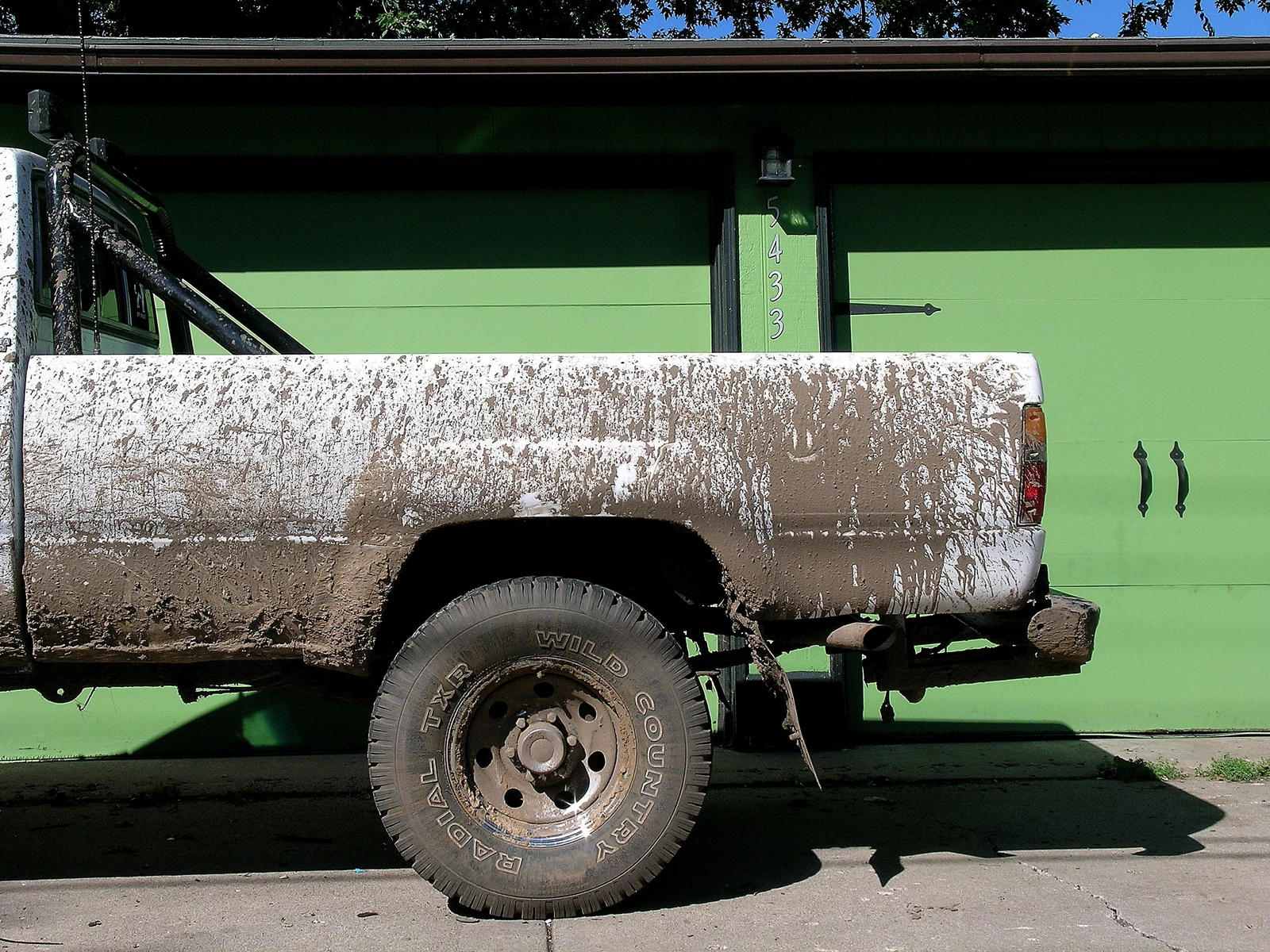
Pickup
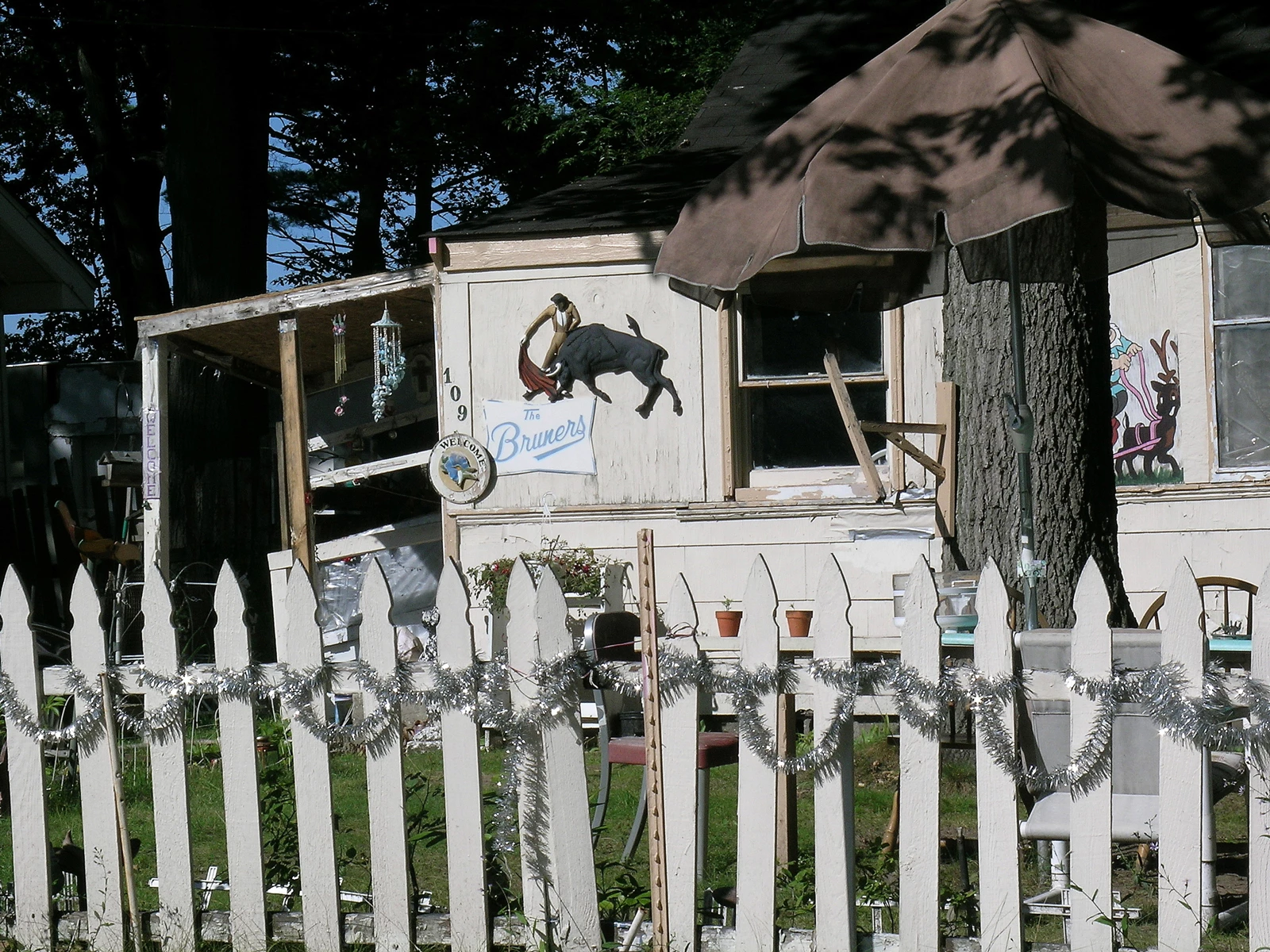
The Bruners
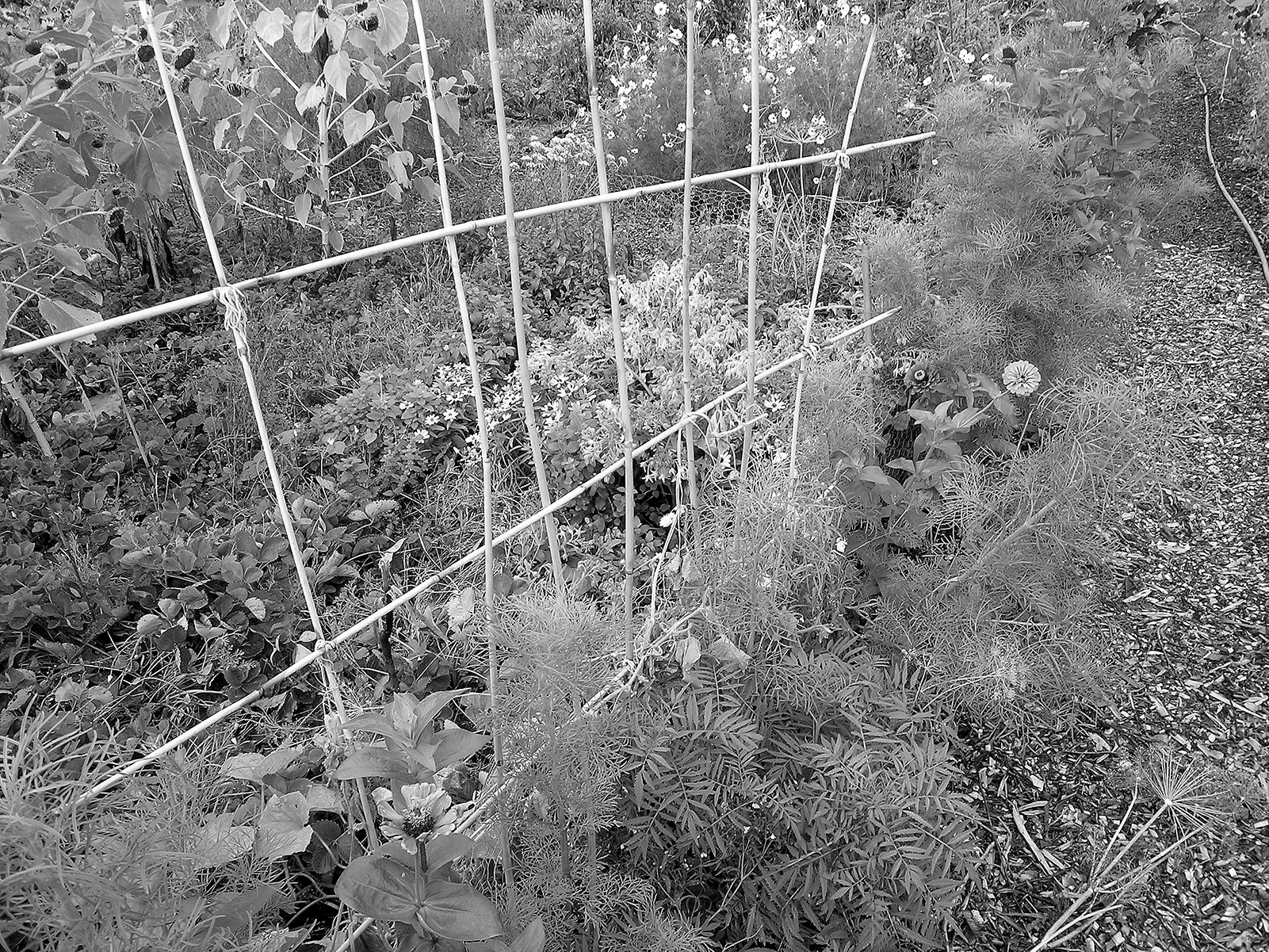
Garden Path

NBA
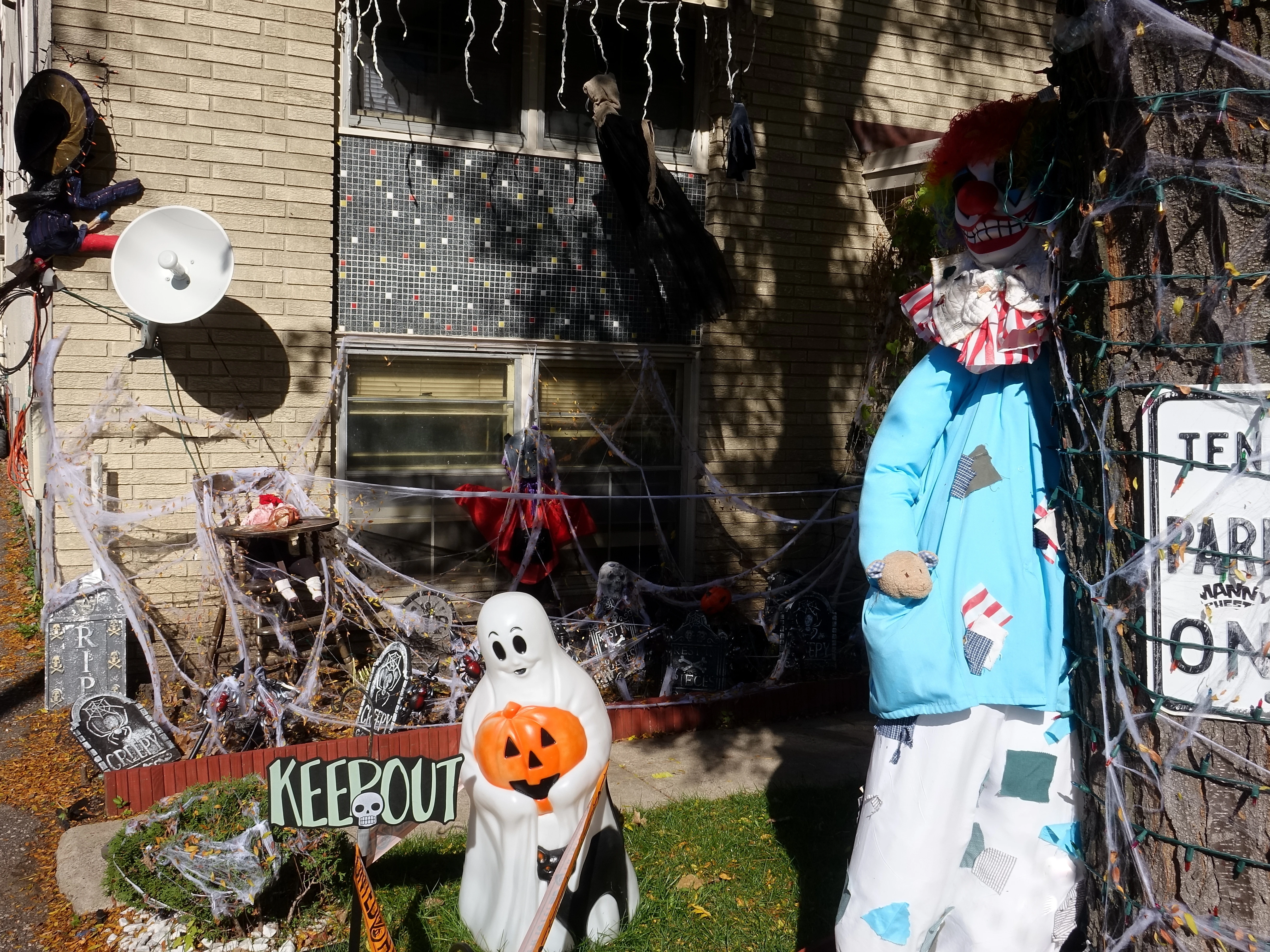
Keep Out
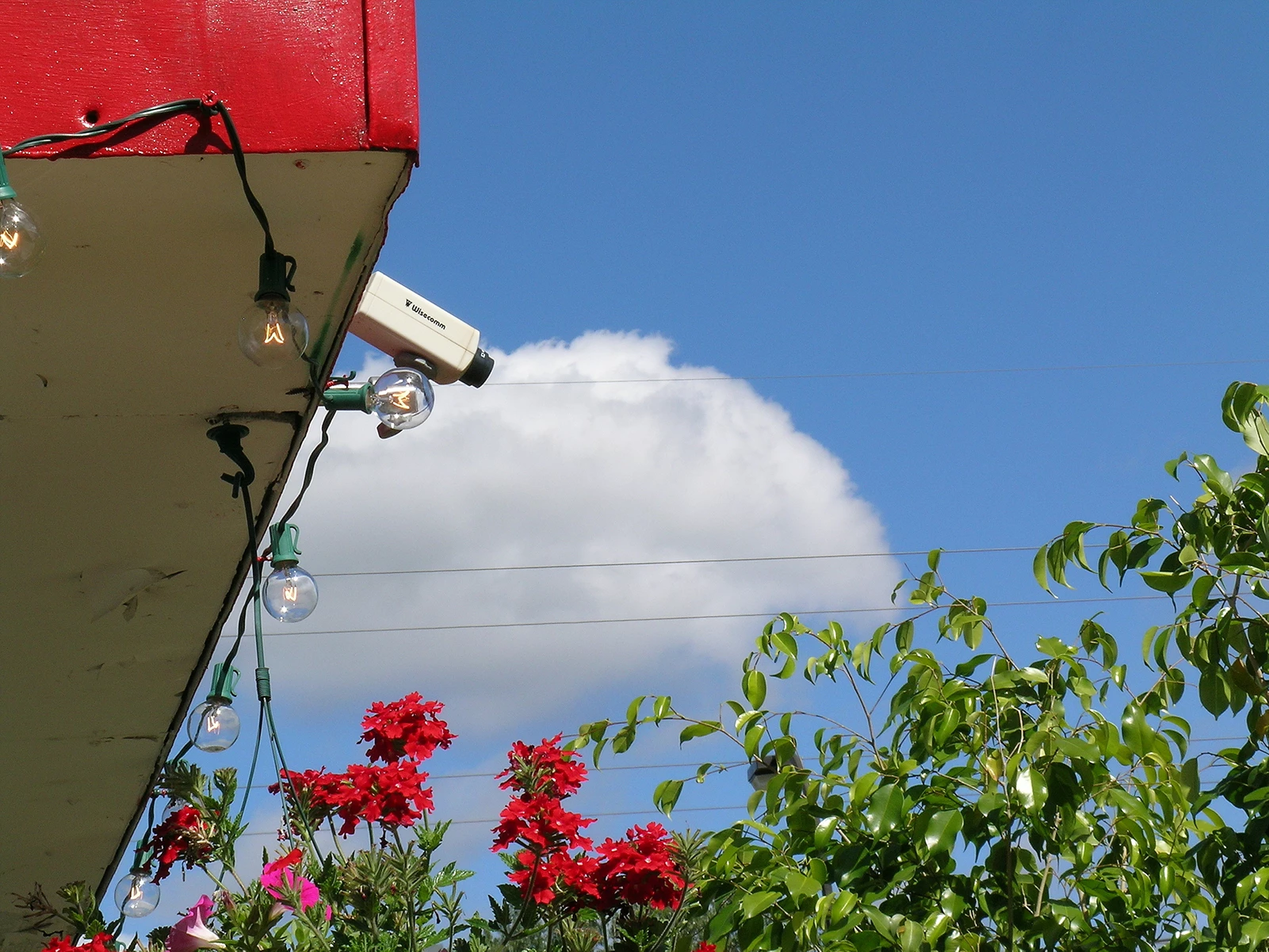
Watching
Portraits
The guys in high school were capable of unusual cruelty: she has the face, they would say, of a carrot, but her body is . . . oh, anyone can fill in the rest, anyone who has spent time in high school listening to the casual, not-quite-witty expressions of abject fear and desire muttered down the hallways in front of the lockers that carry the distant odor of acne cream and adolescent sweat. But do the boys, heading home on the school bus or behind the wheel in their beaters, think: Do I have a peach-cobbler face? Do I look like a radish on good days and a watermelon on bad ones? Do I look like anything at all? Sometimes I don't feel like anyone. The French philosopher Levinas says the face is irreducible, but here at the fair, the faces grin and smirk and glower and gape and frown. My goodness, the faces are everywhere you look, sometimes attached to heads of people who are looking back at you, sometimes not: that zucchini looks just like Bill, the casaba melon looks like Sam, the prize pineapple has acne like Al's, and the lettuce could be poor Tom's twin, but at least he has a nice personality.
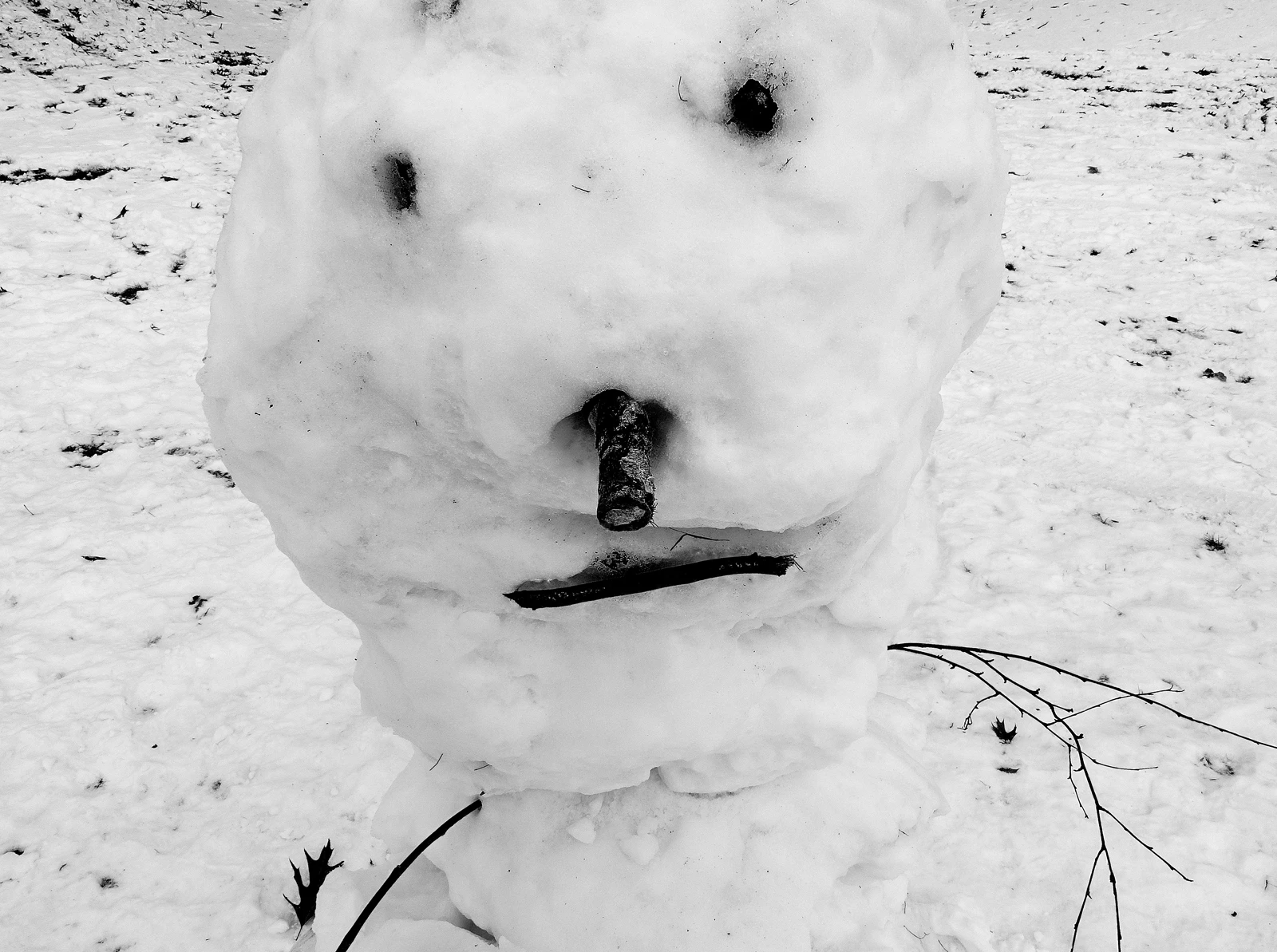
Snowman
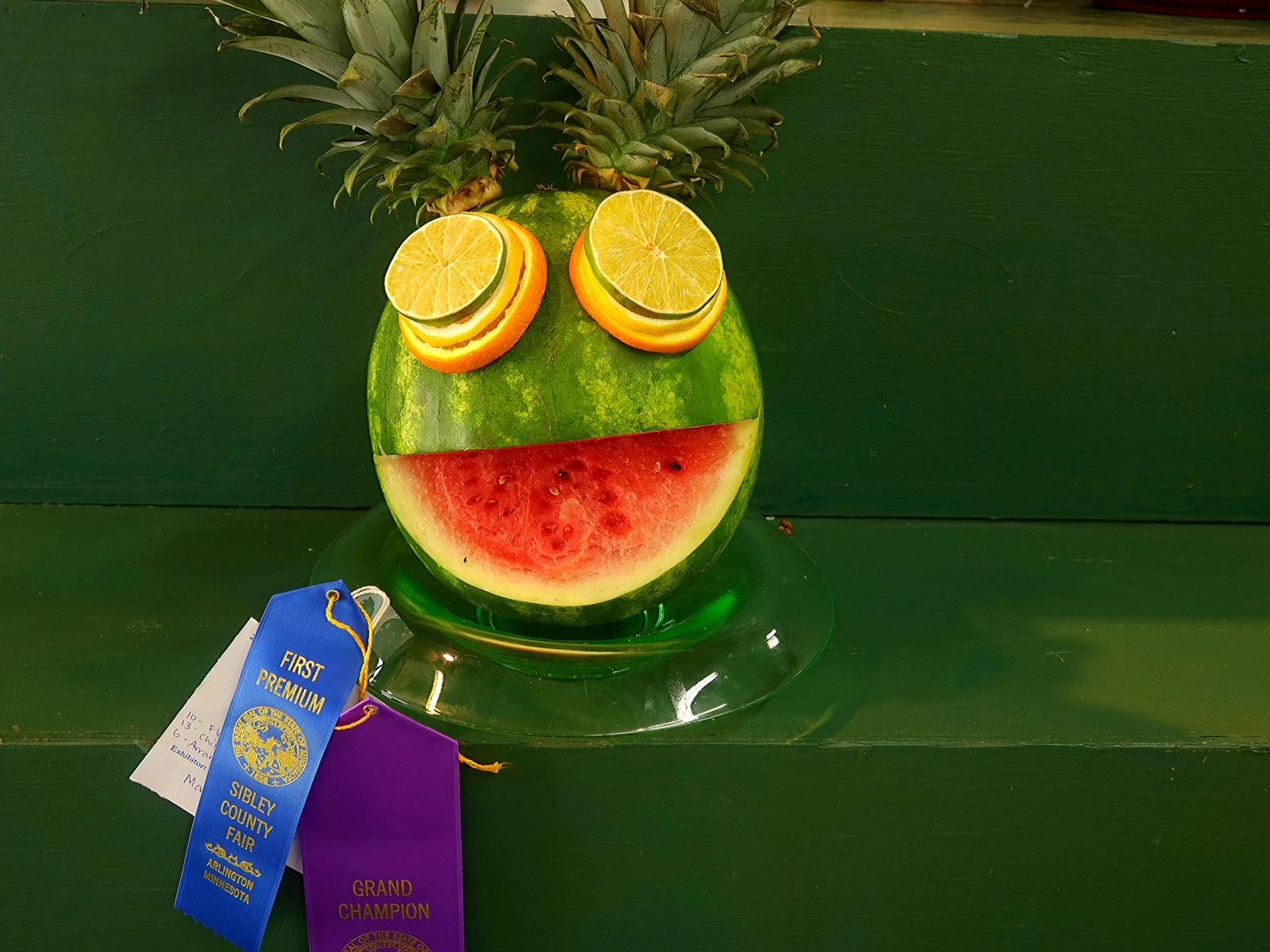
Watermelon Man
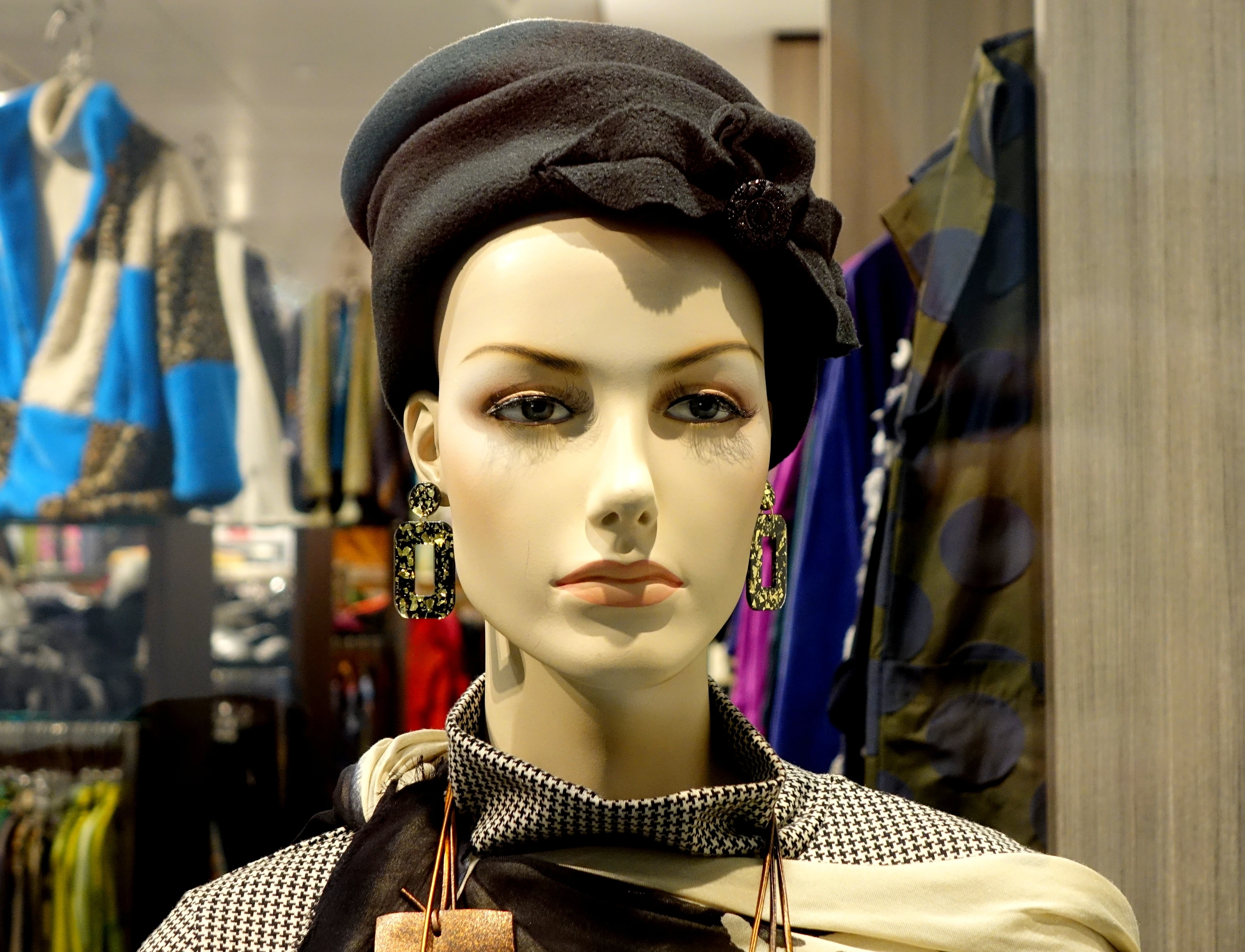
The Shopper
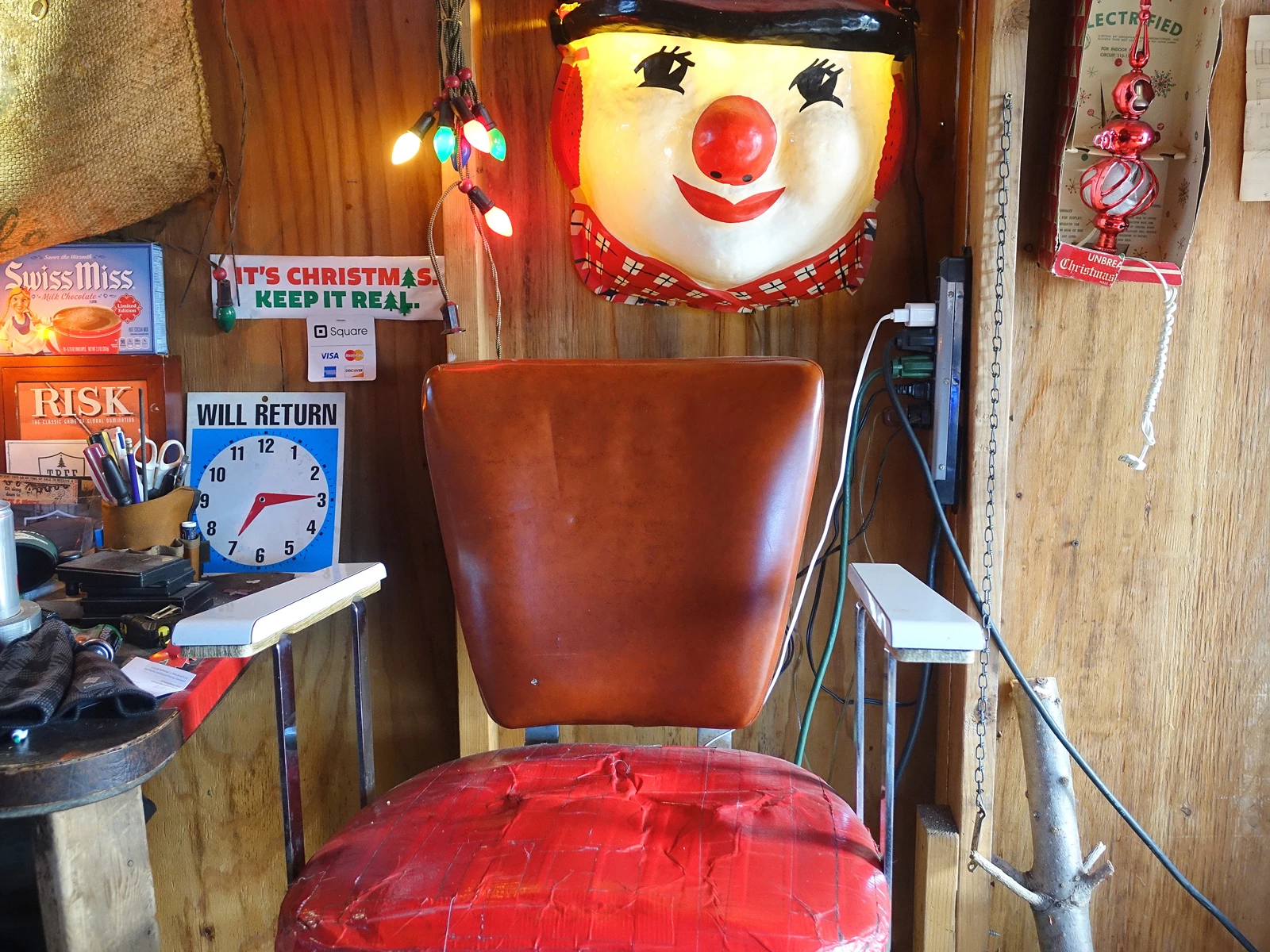
Back Soon
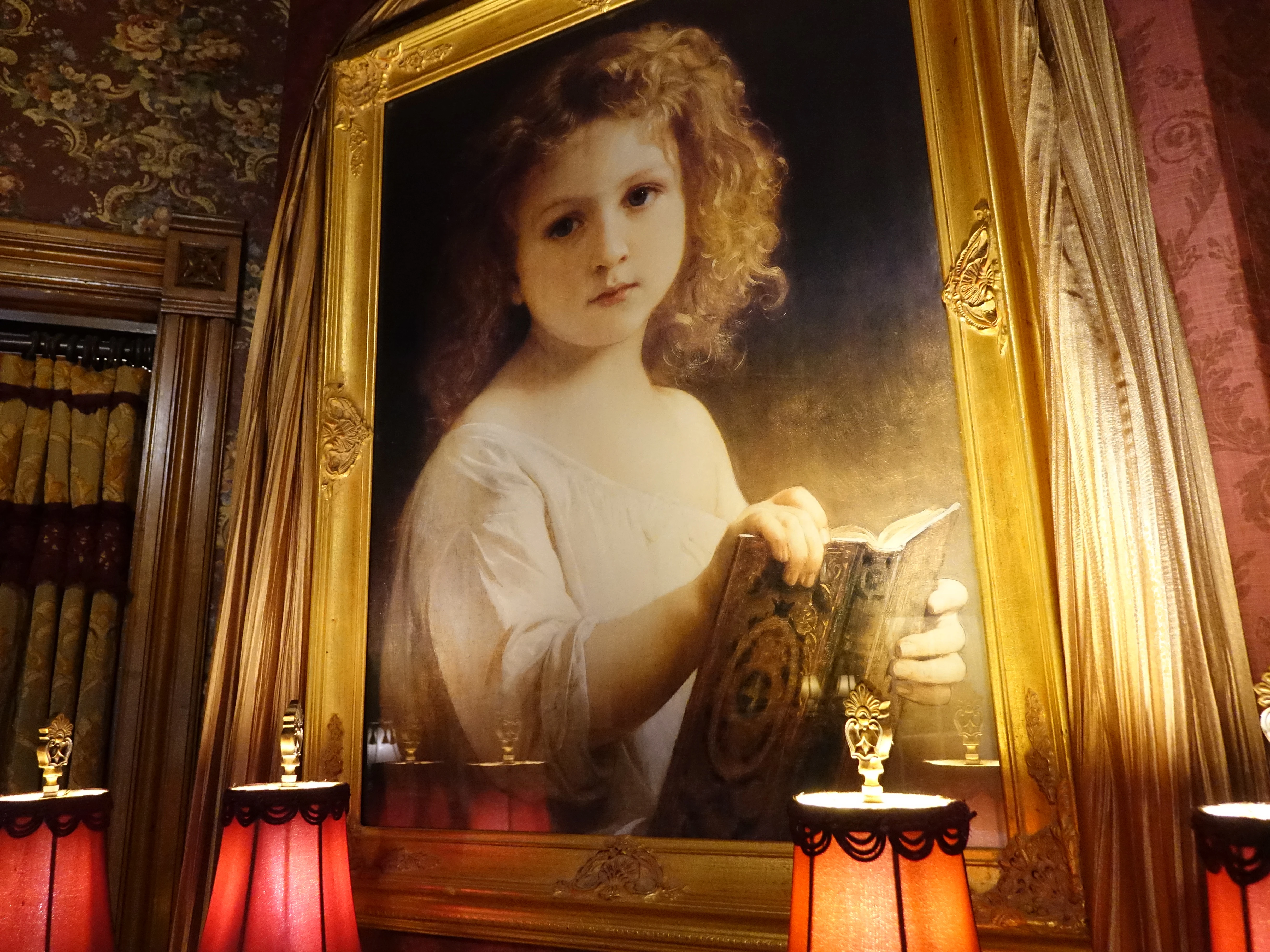
Our Bouguereau
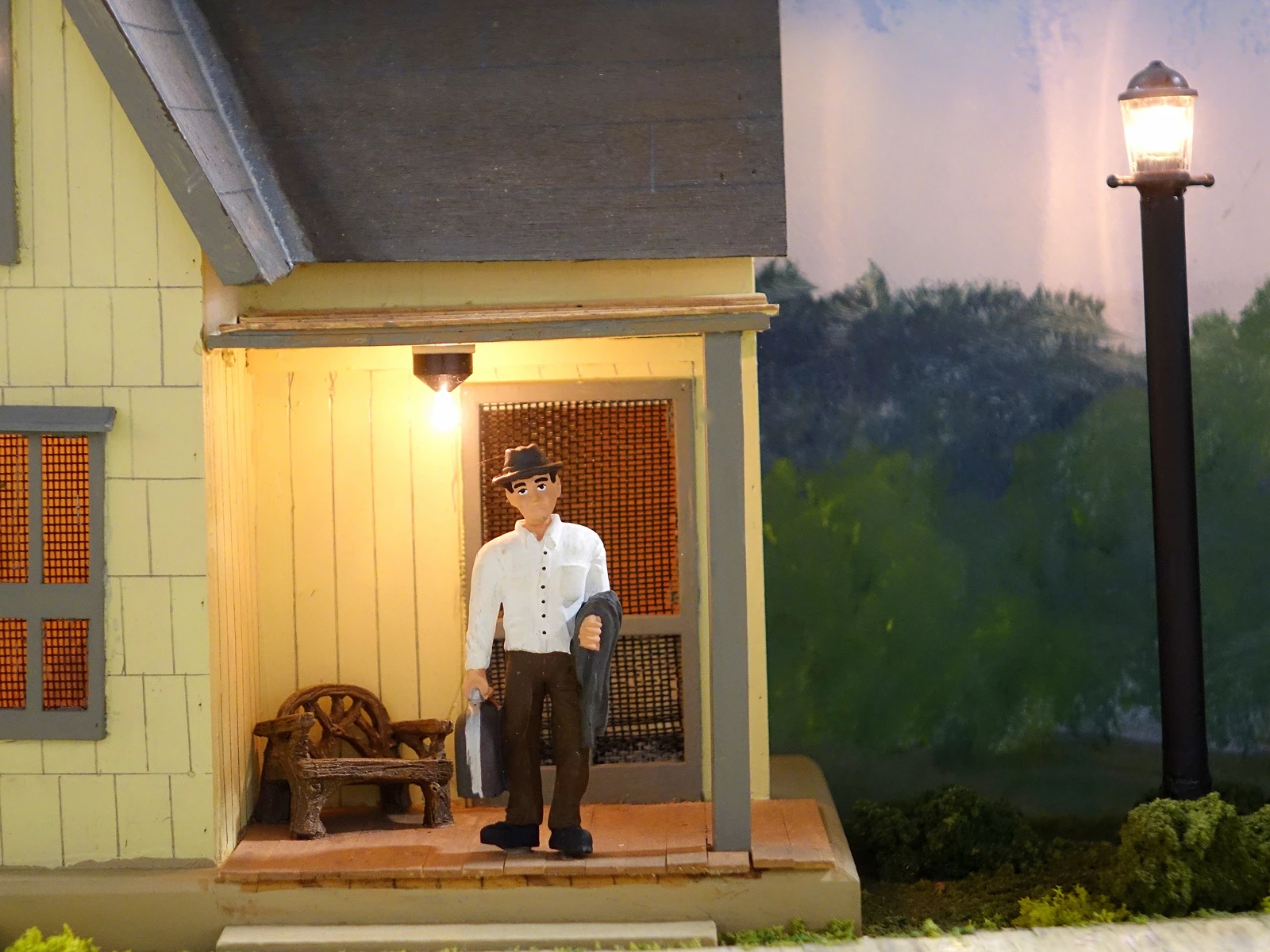
Another Day
Landscapes
Whenever B. tells friends that he is going to take a passenger train somewhere, they are either amused or incredulous. B. was once on a train that had stopped in what seemed to be a snowy field out in the middle of Minnesota, and no explanation was given by the conductor nor was one expected; meanwhile B. stared out the window at the telephone poles that had long since fallen over and at the fields that had been cultivated and were buried under snow, with a farmhouse, a barn, and a blue silo in the distance, the whole creating an austere, quiet beauty, conducive to napping or to reading a novel or poetry, or to walking through the coach car, where the poor, who cannot afford compartments, are sprawled out, not expecting much of anything because, for them, life has had a habit of stopping for no reason at all and not delivering on its promises. In the observation car, B. played Solitaire before striking up a conversation with someone from Kansas, a retired cop whose wife had died two years ago, and who now crisscrossed the country to occupy his time. The train starts up. But after ten minutes, it stops. We might be here forever.
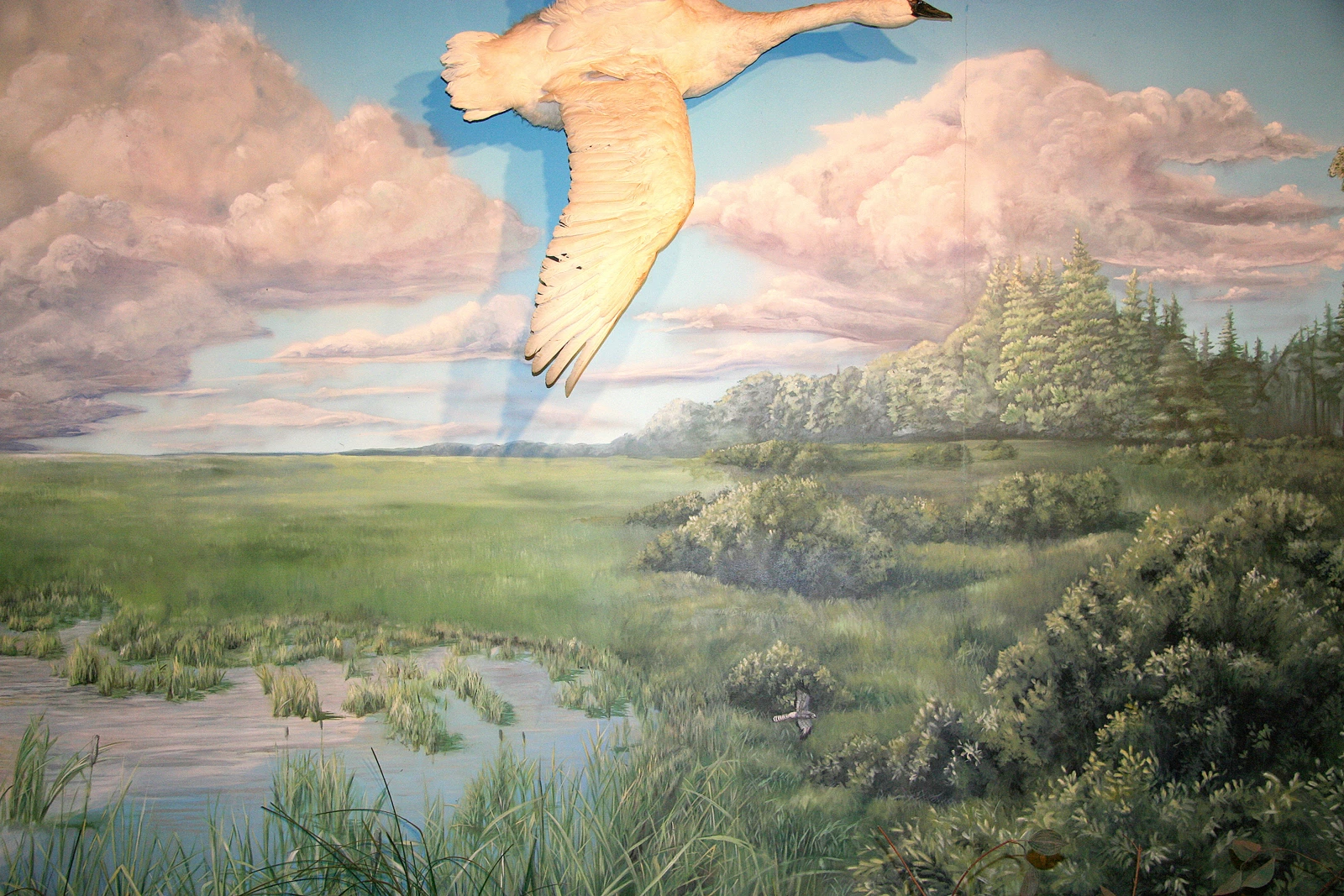
Swan
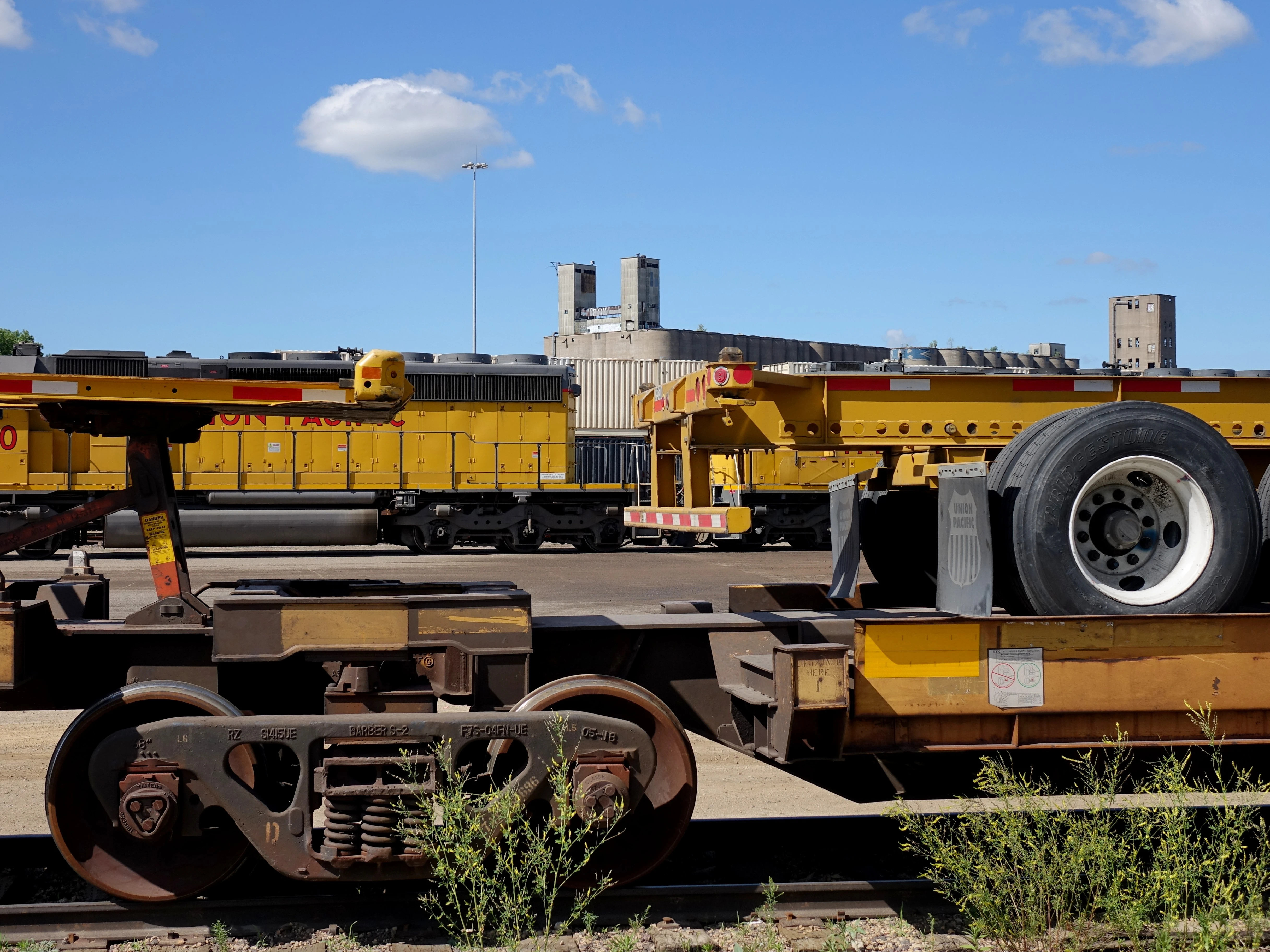
Union Pacific
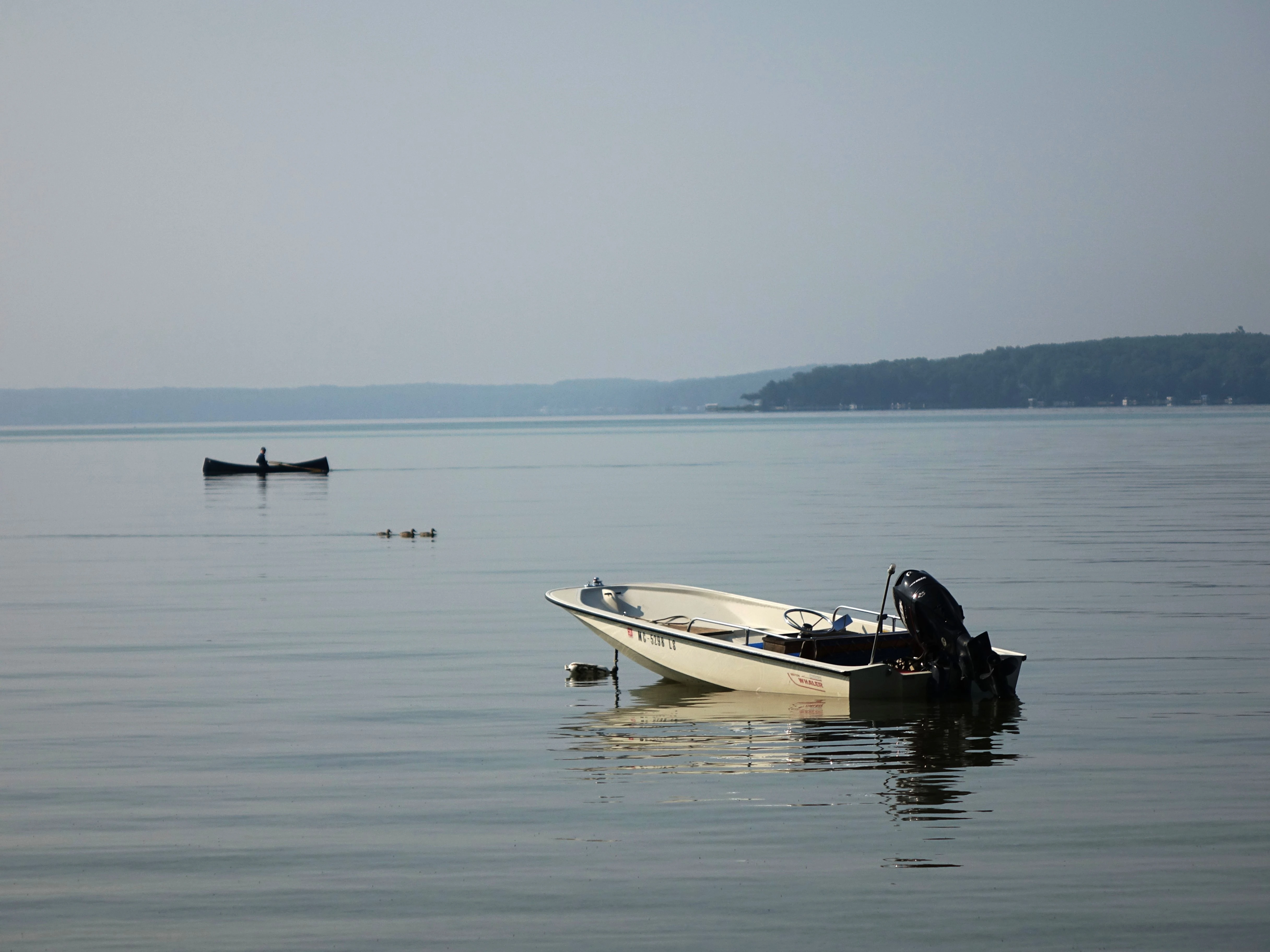
Tranquility
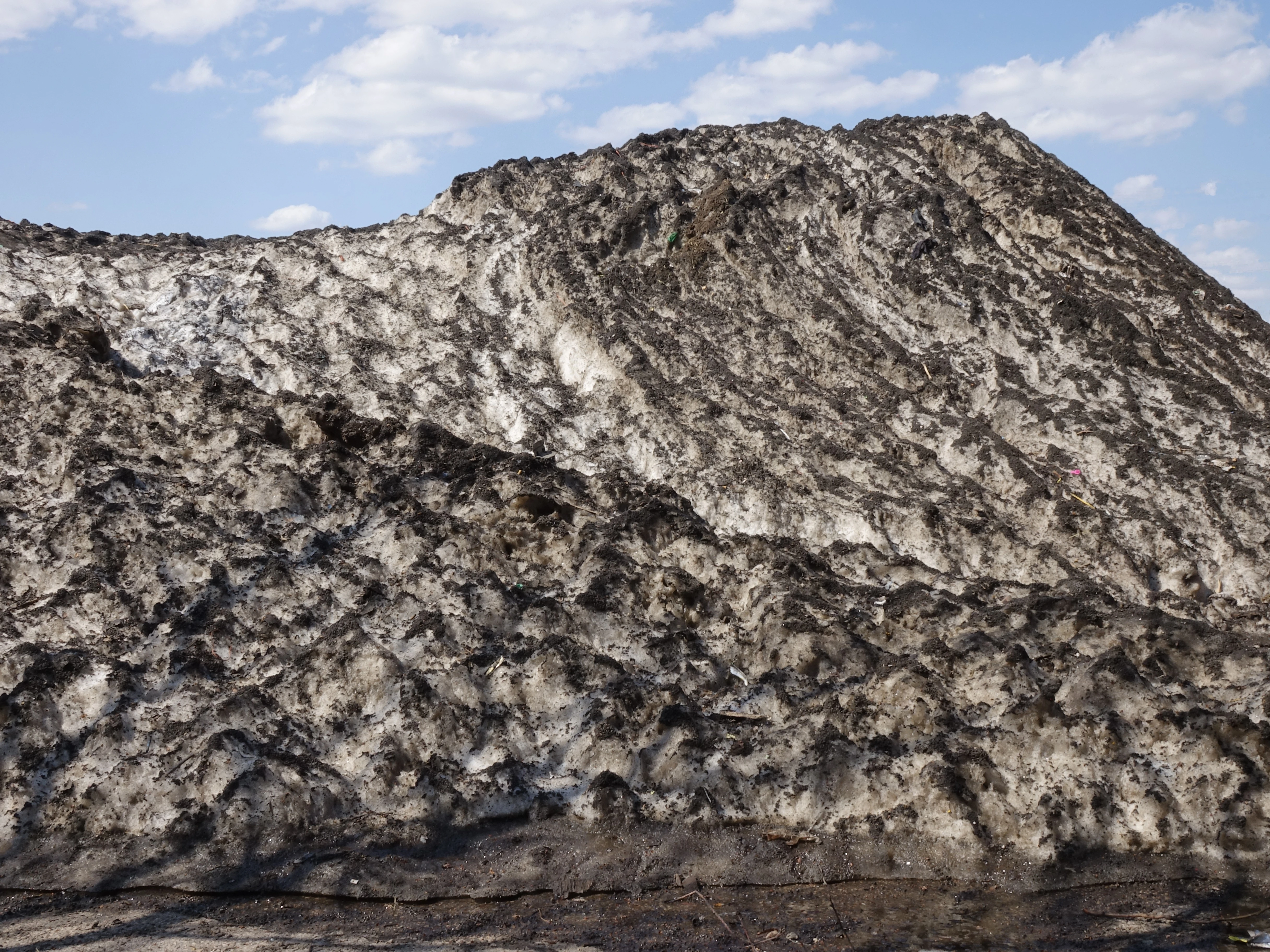
Snow Plowed
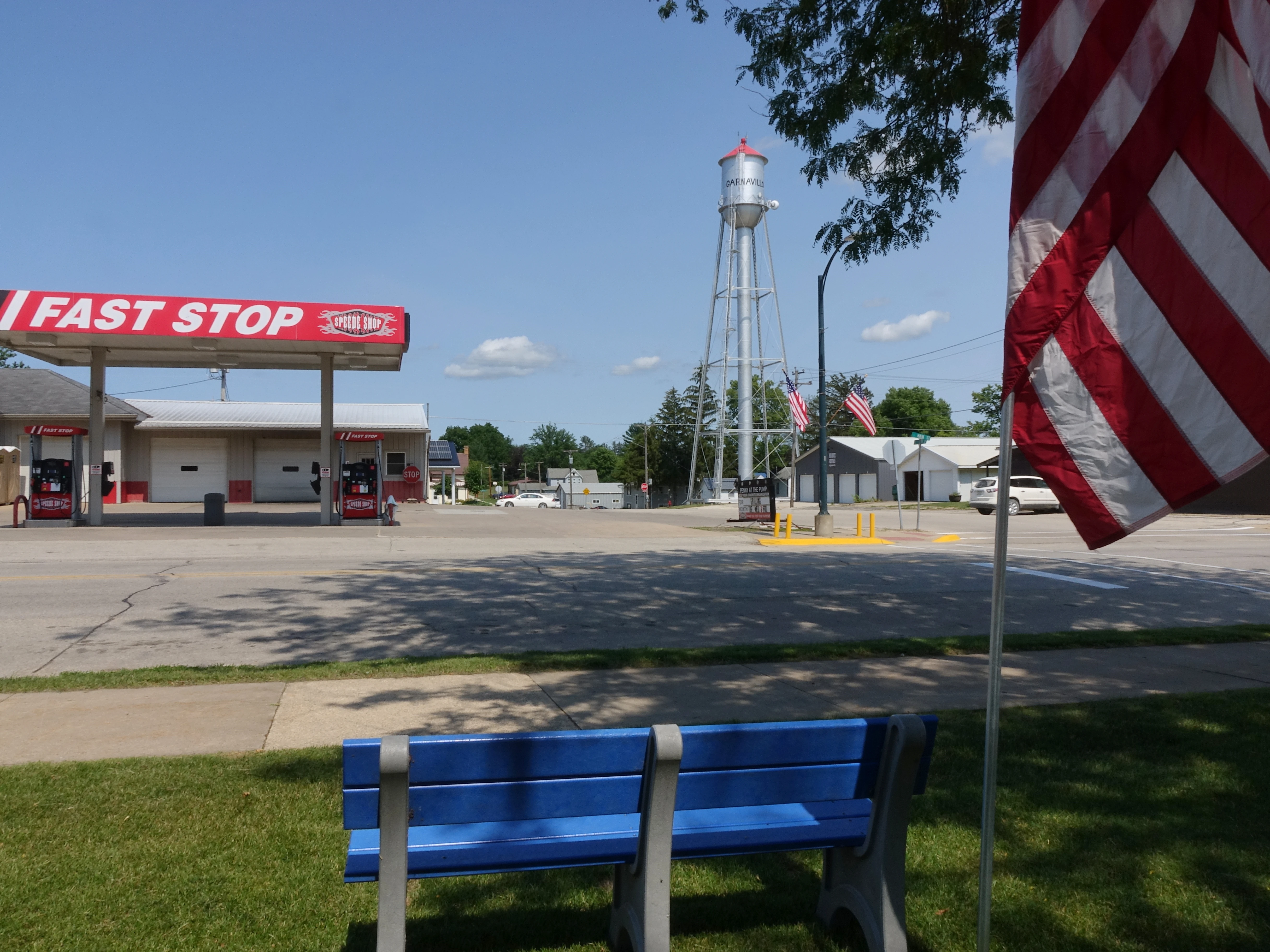
Carnavillo
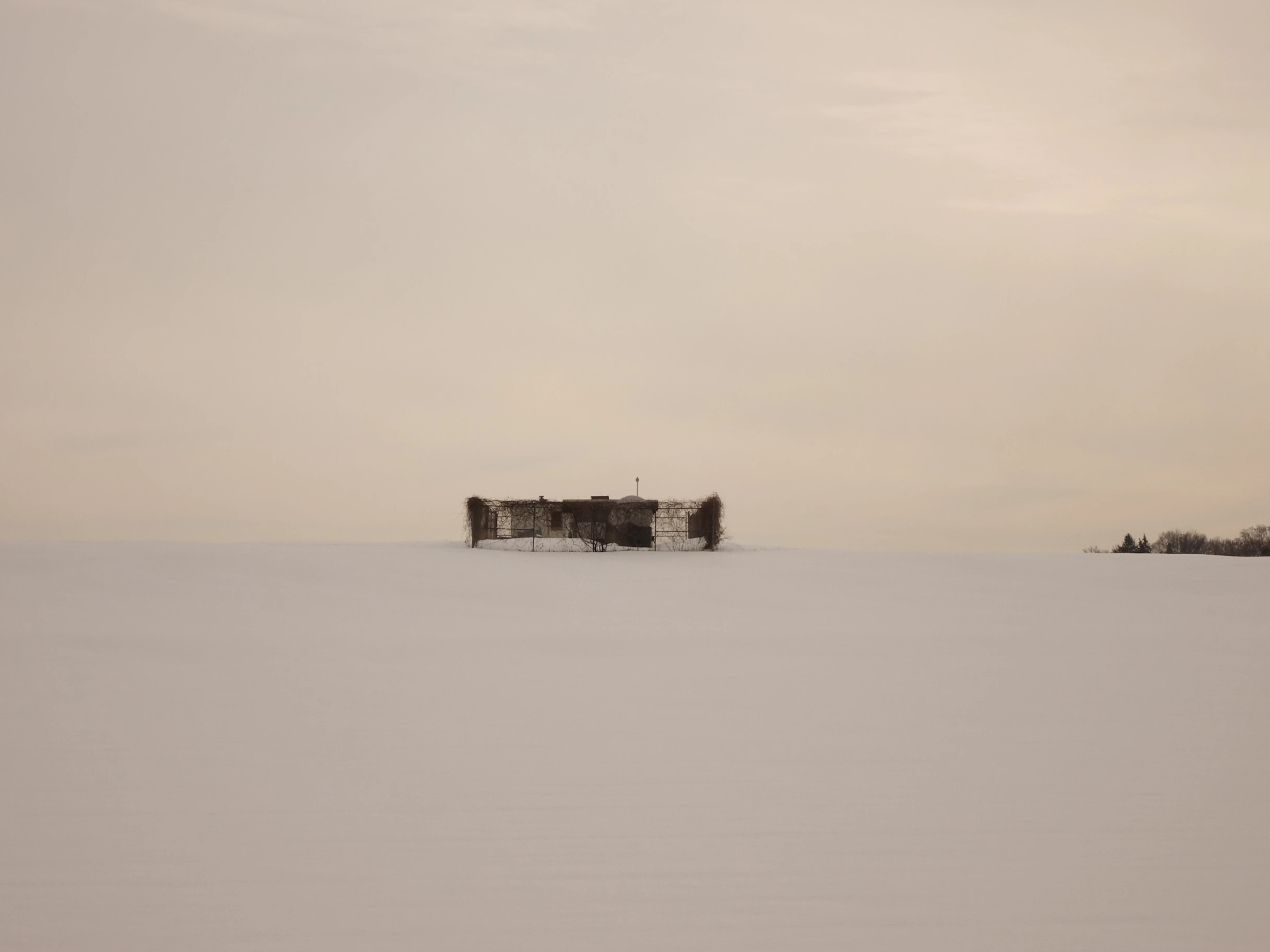
Doomsday
Agriculture
Mid-summer, corn-growing weather, hot, stifling, cloudless sky, a sun shining beyond brilliance, interrogating, thirst, dry mouth, aching shoulders, the smell of hay, drying cow turds underfoot, the men in fields, women inside — no more, that's over — women on tractors, children on tractors, searching the sky for clouds, for rain, too much rain, not enough rain, hot breeze rattling the corn stalks, the plow, the scythe, the work, tornadoes, the regular sweep of the rake, swallows flying in and out of the barn, the blank-faced sheep, thoughtful ruminating cows, crafty pigs, the mid-day rest, the work, the distant thunder, the pride, the straight rows, the long days, the short nights, the smell of fresh dirt, of sweat, of manure, anhydrous ammonia, the work, the harvest, the morning milking, the milk, the eggs, the corn, the soybeans, alfalfa, lamb, pork, steak, siloed corn, the work, the end of summer, homecoming, the first snow, the work, the frost, kids in school, the snowfall, the work, the work, always the work.
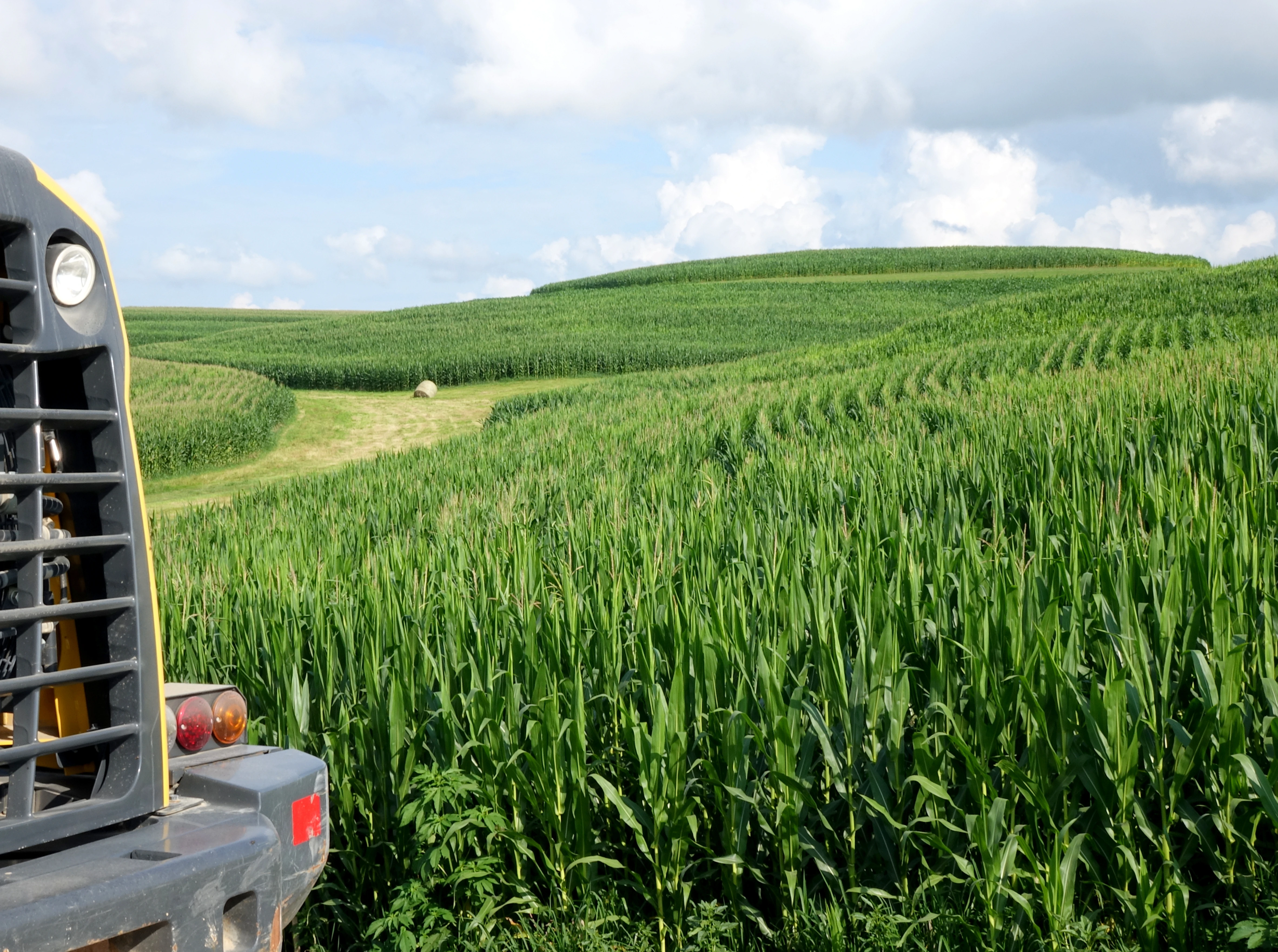
Corn
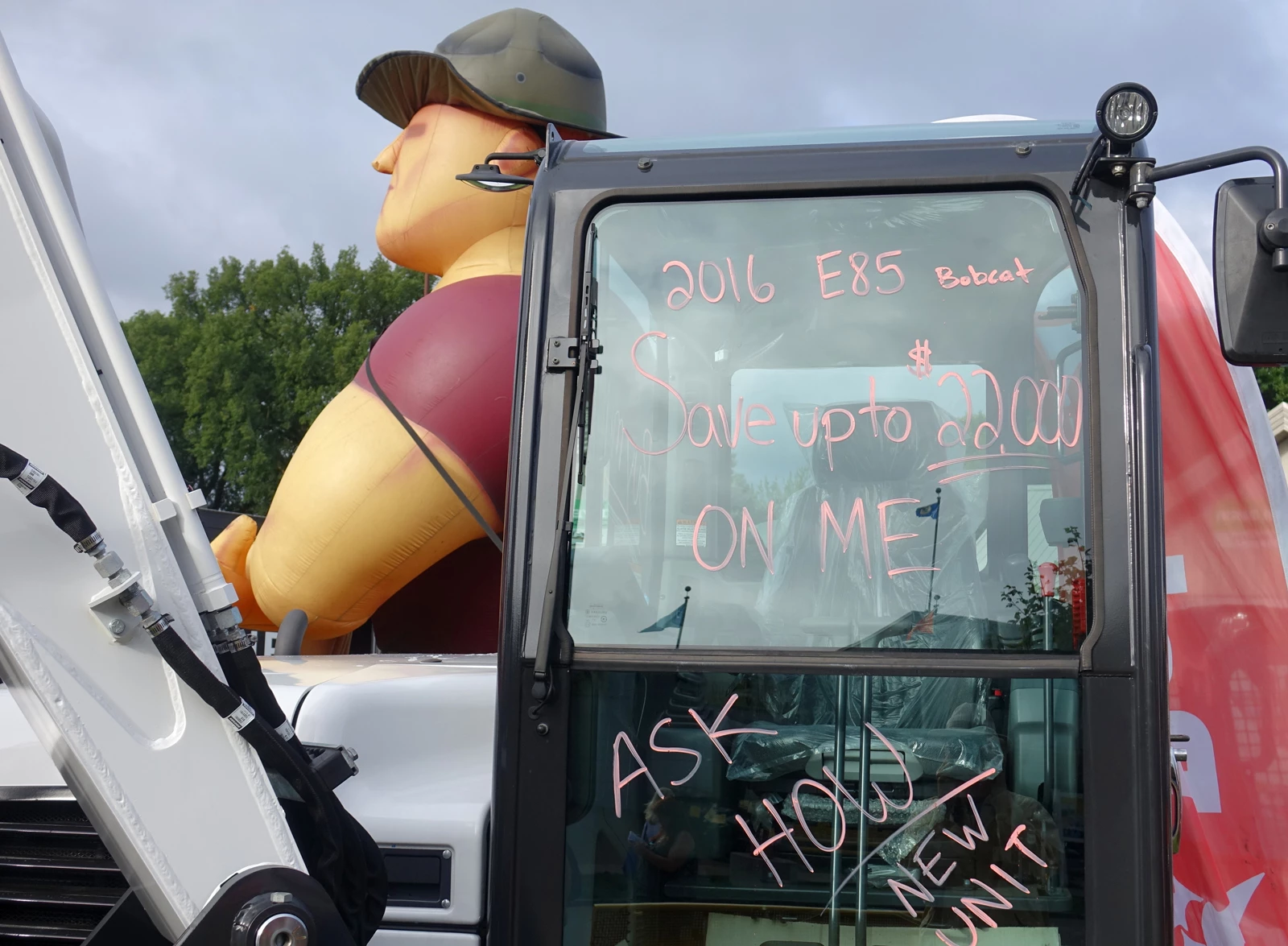
Ask How
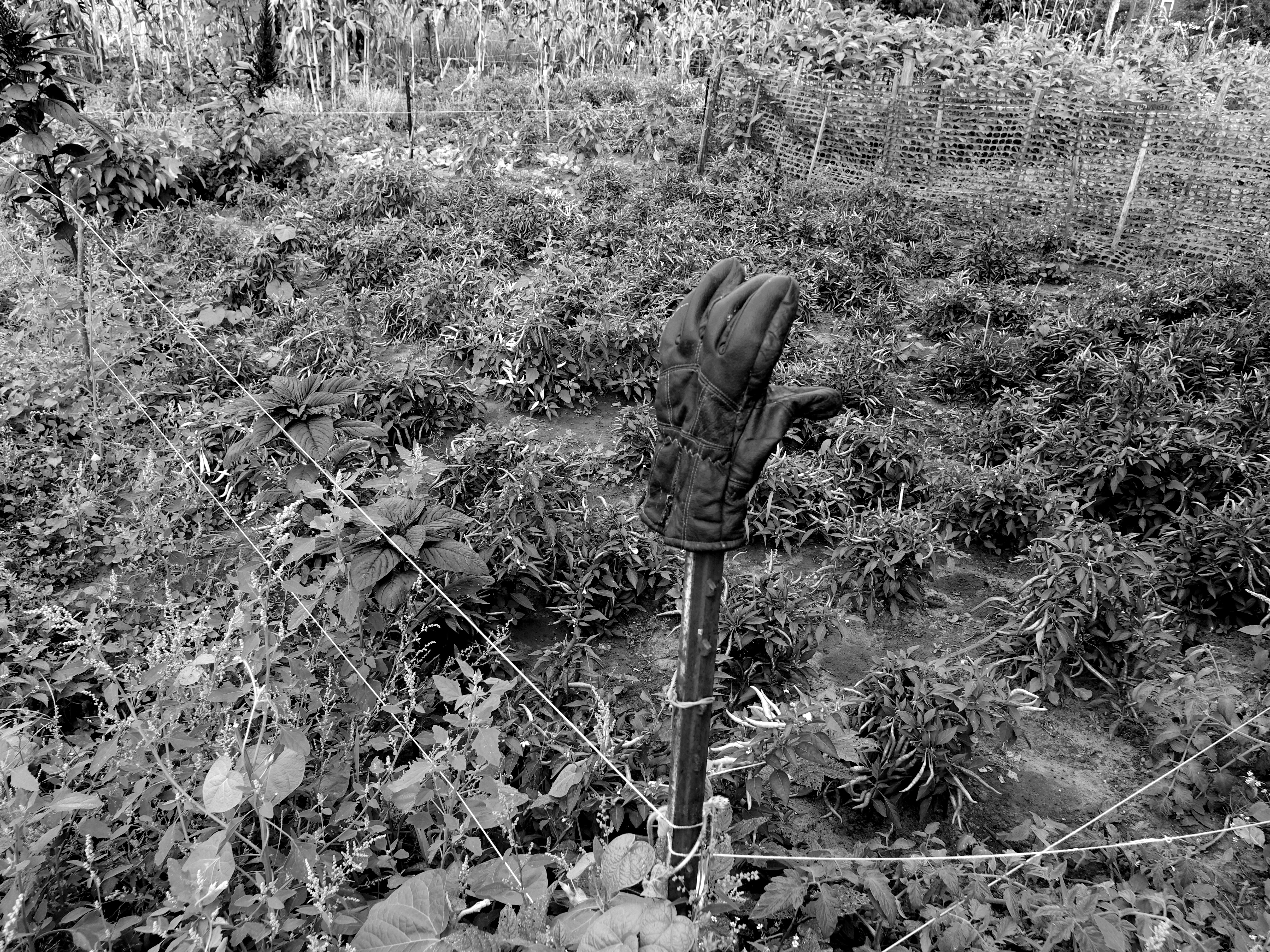
Noj Zoo
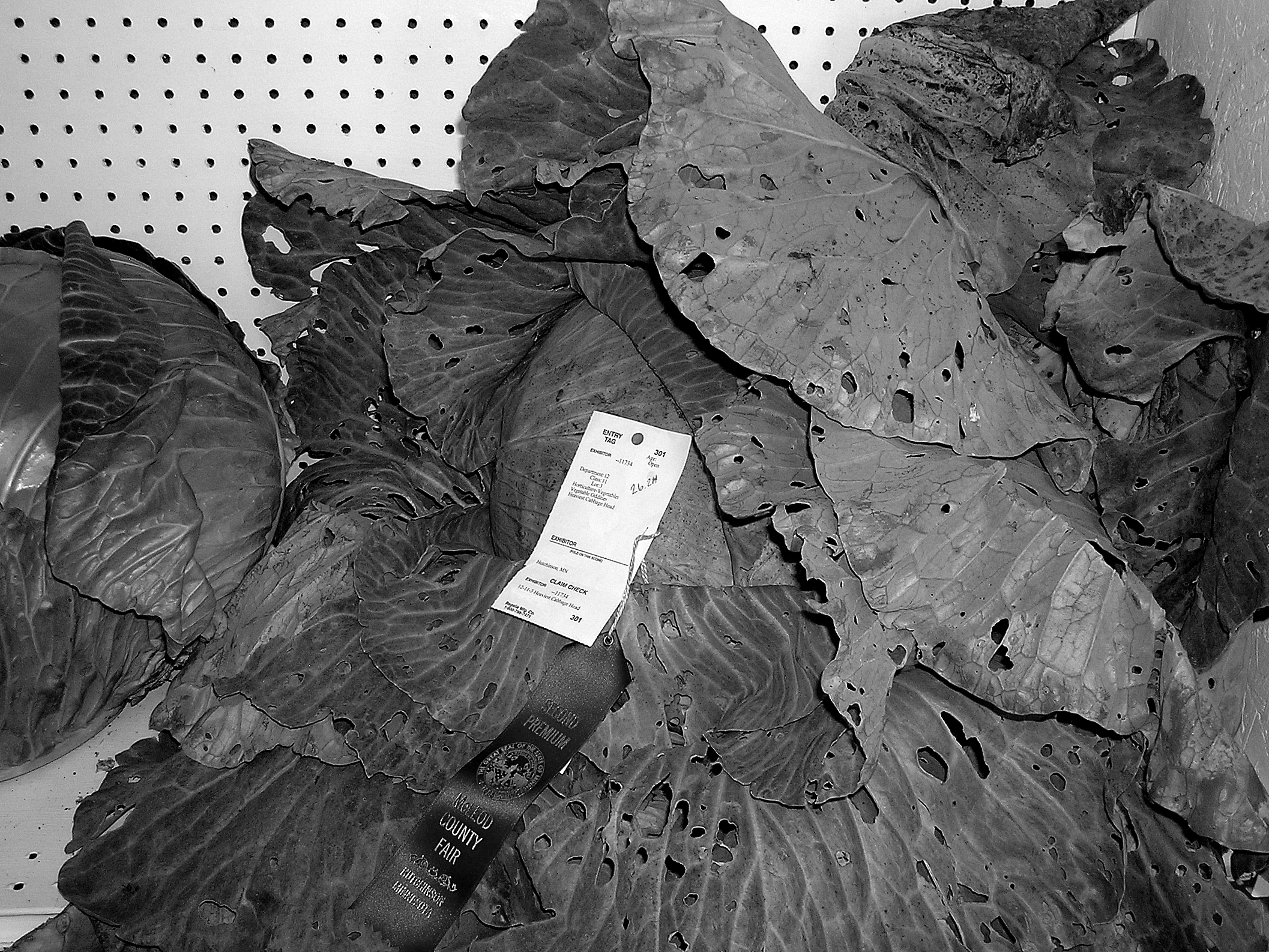
The Big One
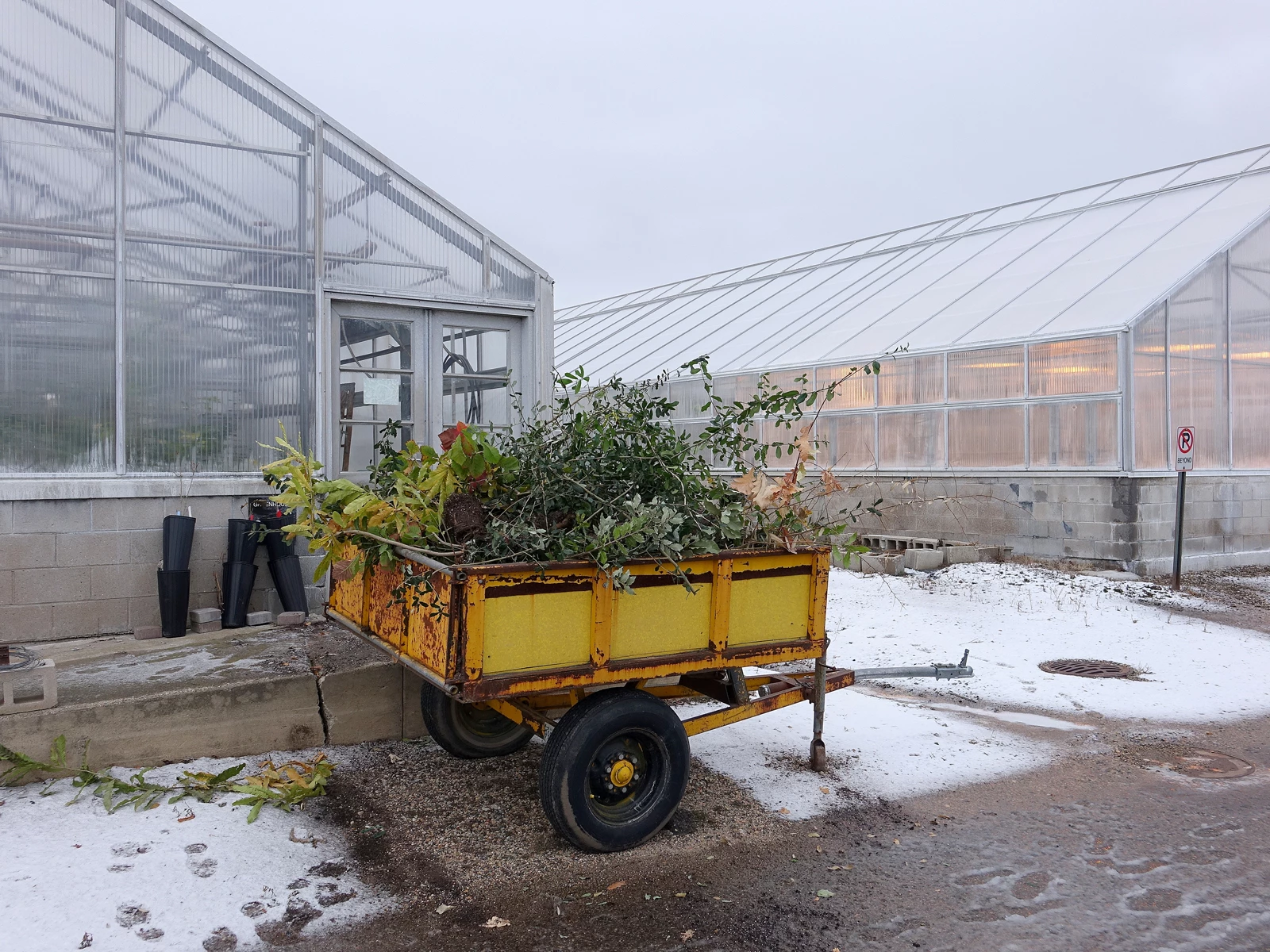
Early Snow
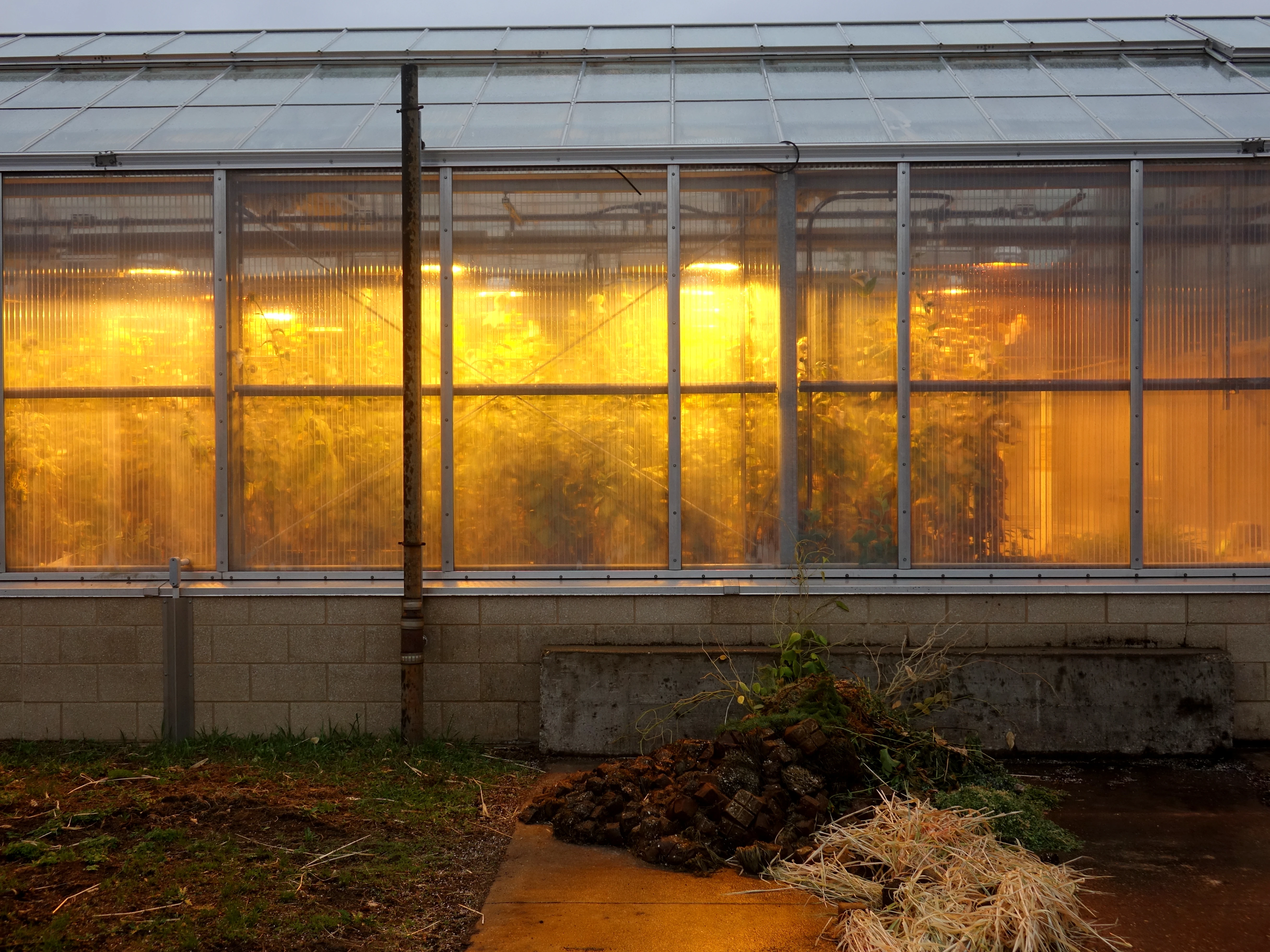
Agri-Biz
Recreation and Amusements
The word "creation" is at the heart of the word "recreation" and the word "muse" is at the heart of "amusements." A muse and a maze, to quote a friend of mine—amuse and amaze. When you're amused, you're not laughing out loud, not exactly; when you're bemused, you're bewildered. The laughter goes elsewhere, downward, and is reduced to the size of, say, a toy, and what are toys but representations of bigger things? Dolls and matchbook cars and little trucks and miniature ships and trains and planes made from balsa wood and stuck together with glue? Piggy banks and gumball machines and cap guns and a little fire truck that will shoot actual water? Imaginary gardens with real toads in them, to quote Marianne Moore. Imaginary qualities of actual things, to quote William Carlos Williams. People say that we outgrow our toys, but we never do, not on this planet. Here's a bar of soap I carved into the shape of a horse. Is it a horse or is it soap? Both, or neither? You have ten seconds to answer.
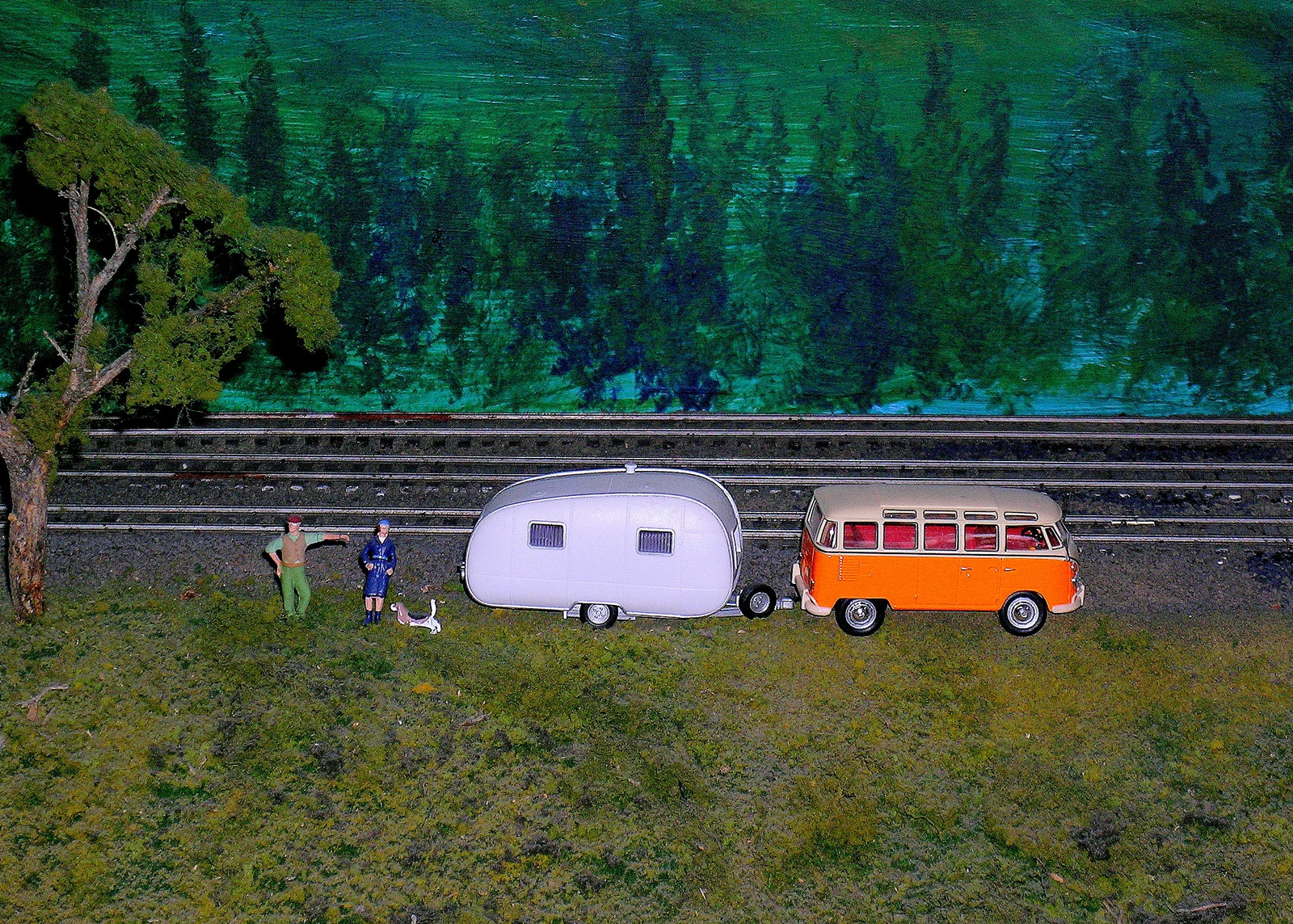
Campers
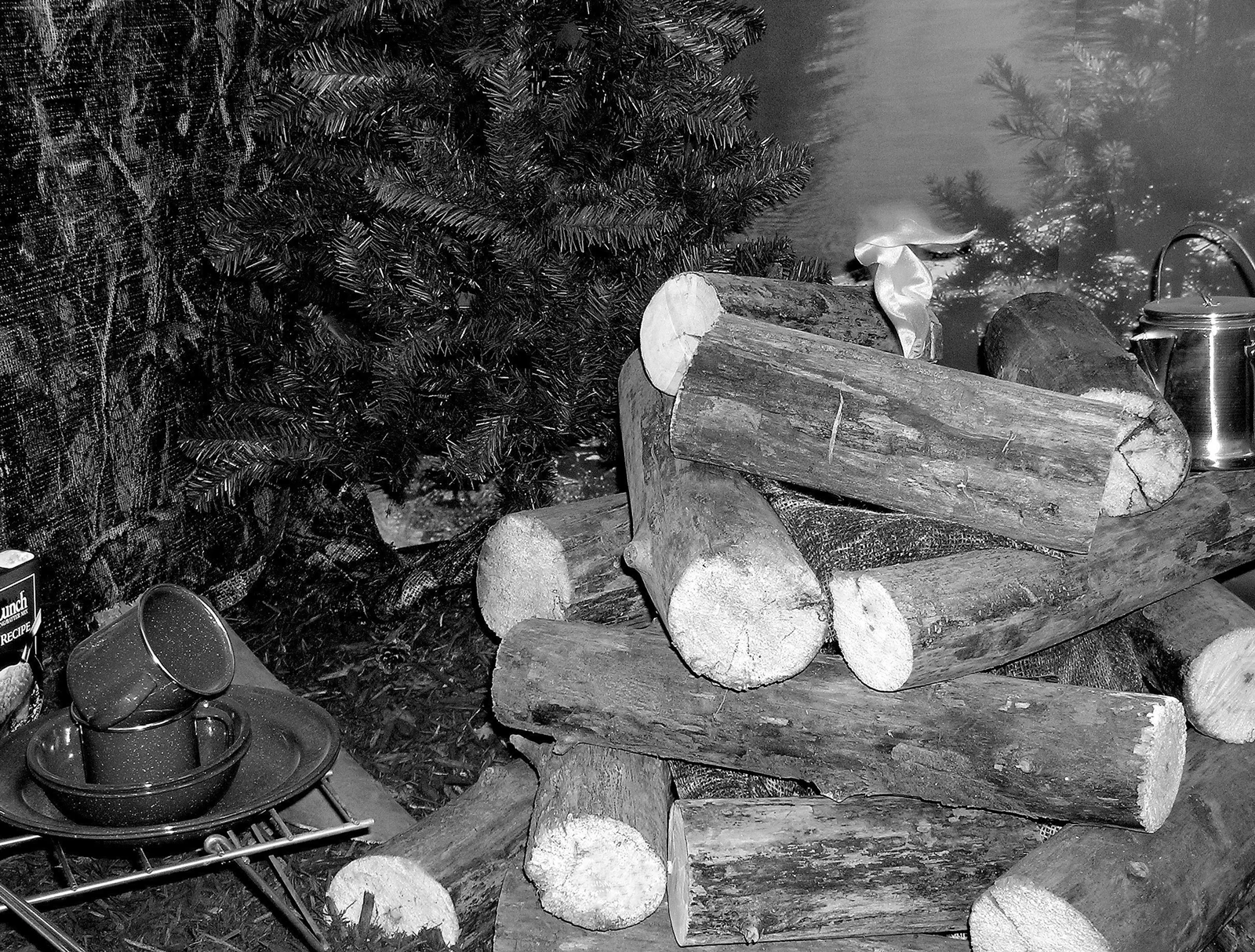
Campfire
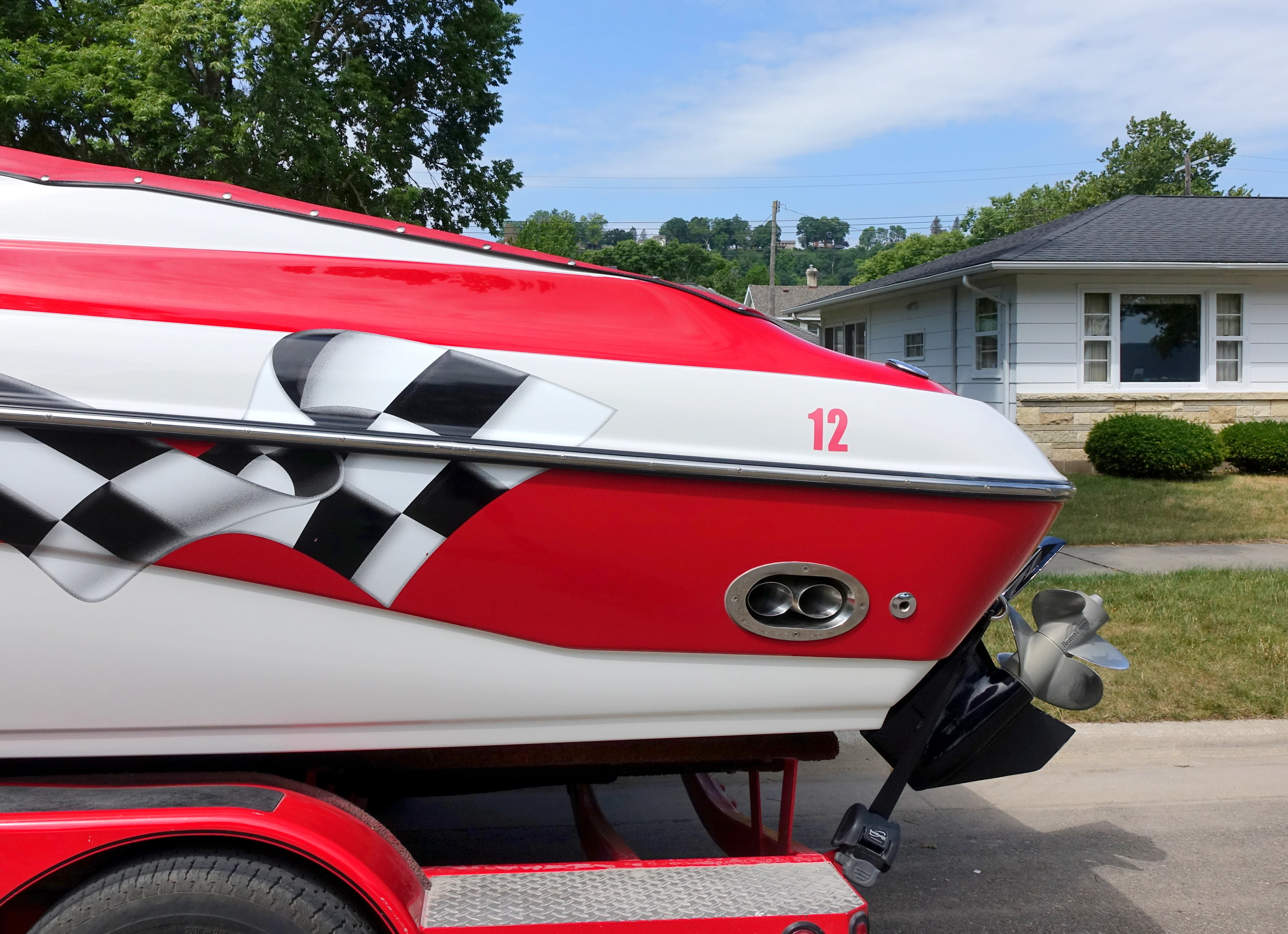
Enthusiastic
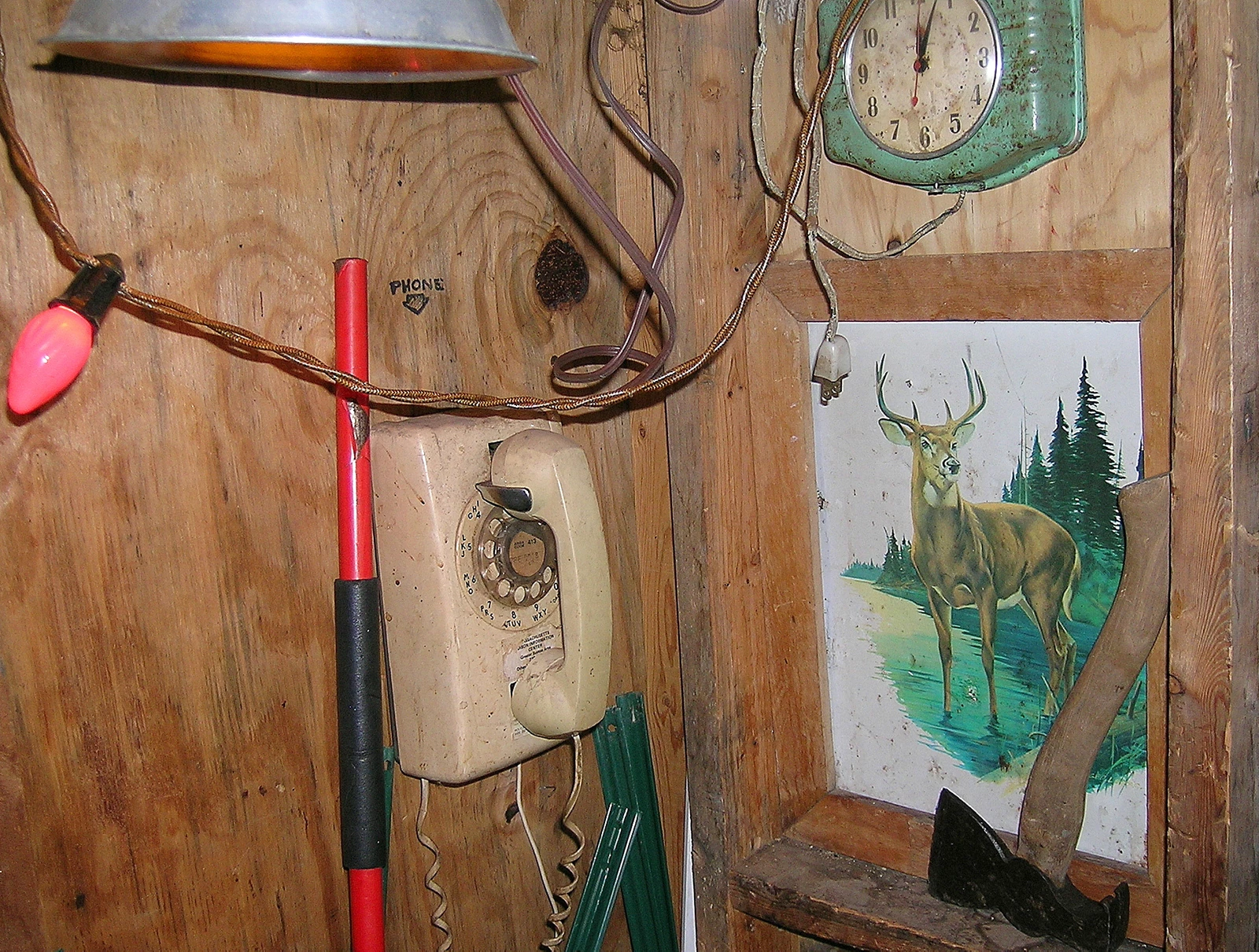
Shanty
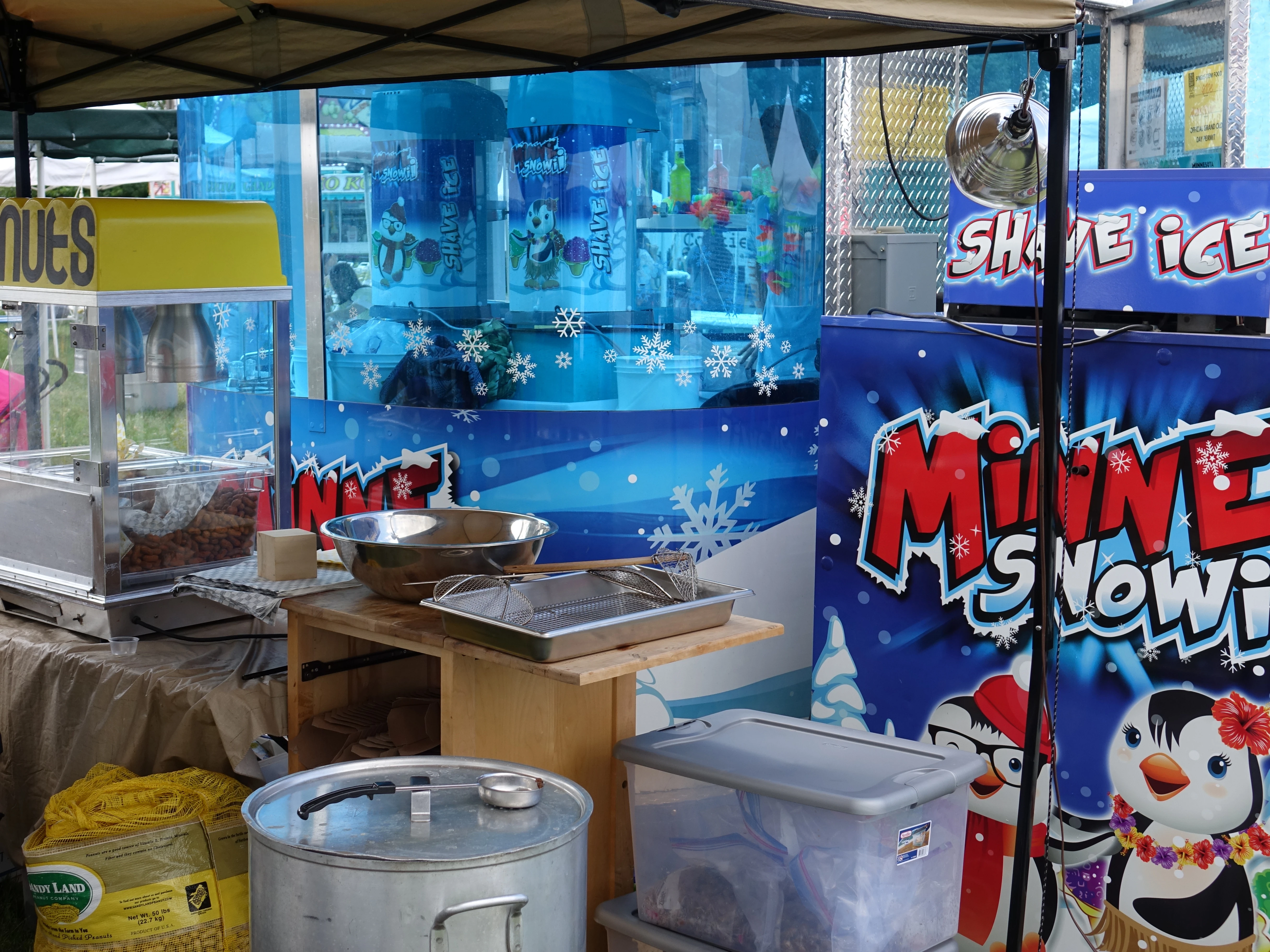
Shave Ice

Tugboat
Industry
They made something, or they grew it, and put it on a train--
Whose destination was a bleached city miles and miles away,
This line of metal loaded down with oil, coal, and grain
Grown here and stored in silos. It was ours; we sold it. You could say
It happened in the dark when the freight slipped by
At night like so much darkness loaded in and weighing on the rails.
The signal starts to clang. The safety arm comes down, and with a sigh
We wait behind the wheel, count freight cars, and tell brief tales
Until the arm goes up and we are off again. Meanwhile
The freight goes off somewhere we've never been, where they
Unload it, move it to a dock, unpack it, and put it in an aisle
Where you can buy it. It once was ours. You could say
That rust forms around the factories and silos, in the rain.
We made it or we grew it, and we put it on a train.

View from the C-Suite
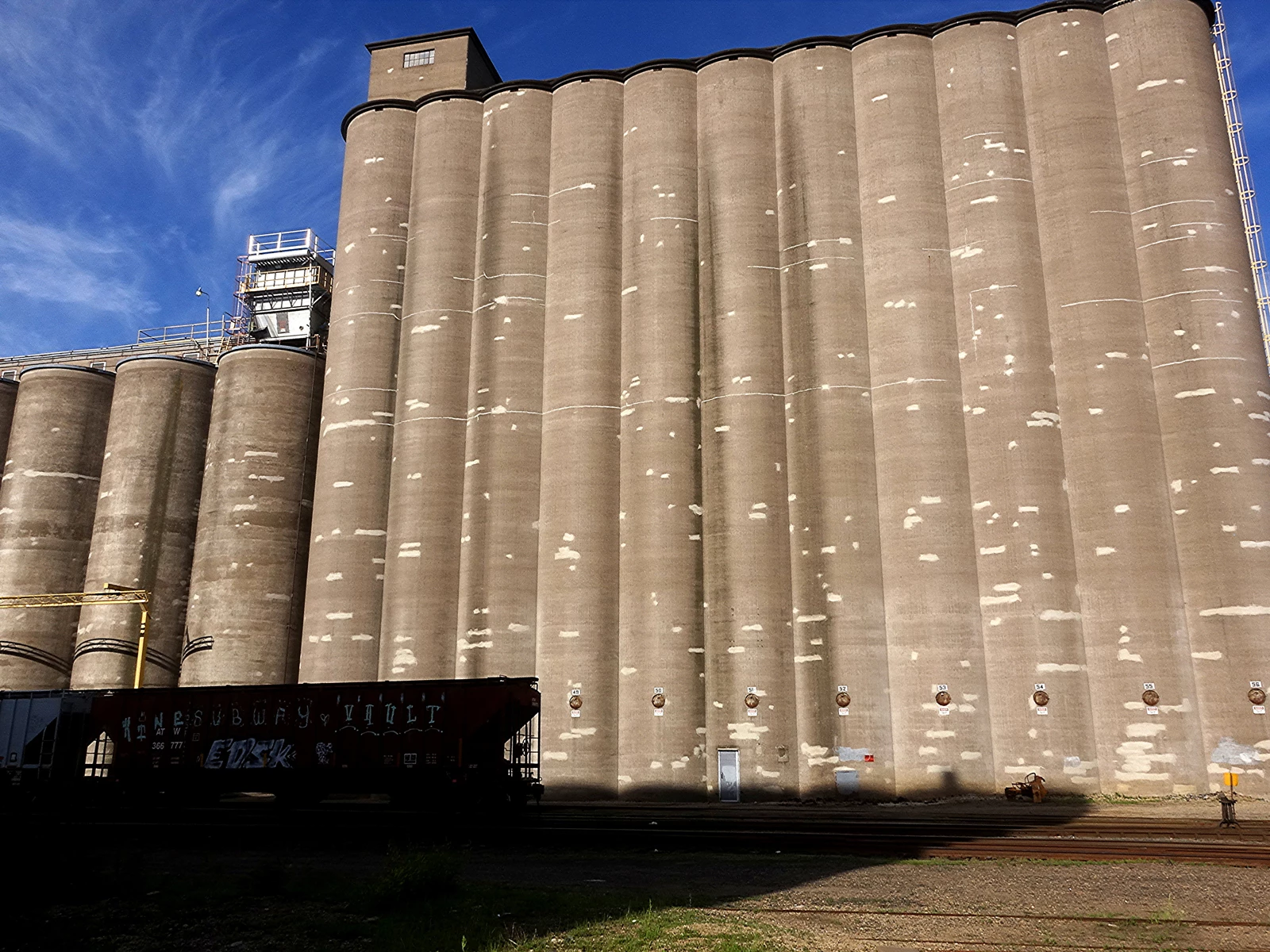
Hiawatha Sunrise
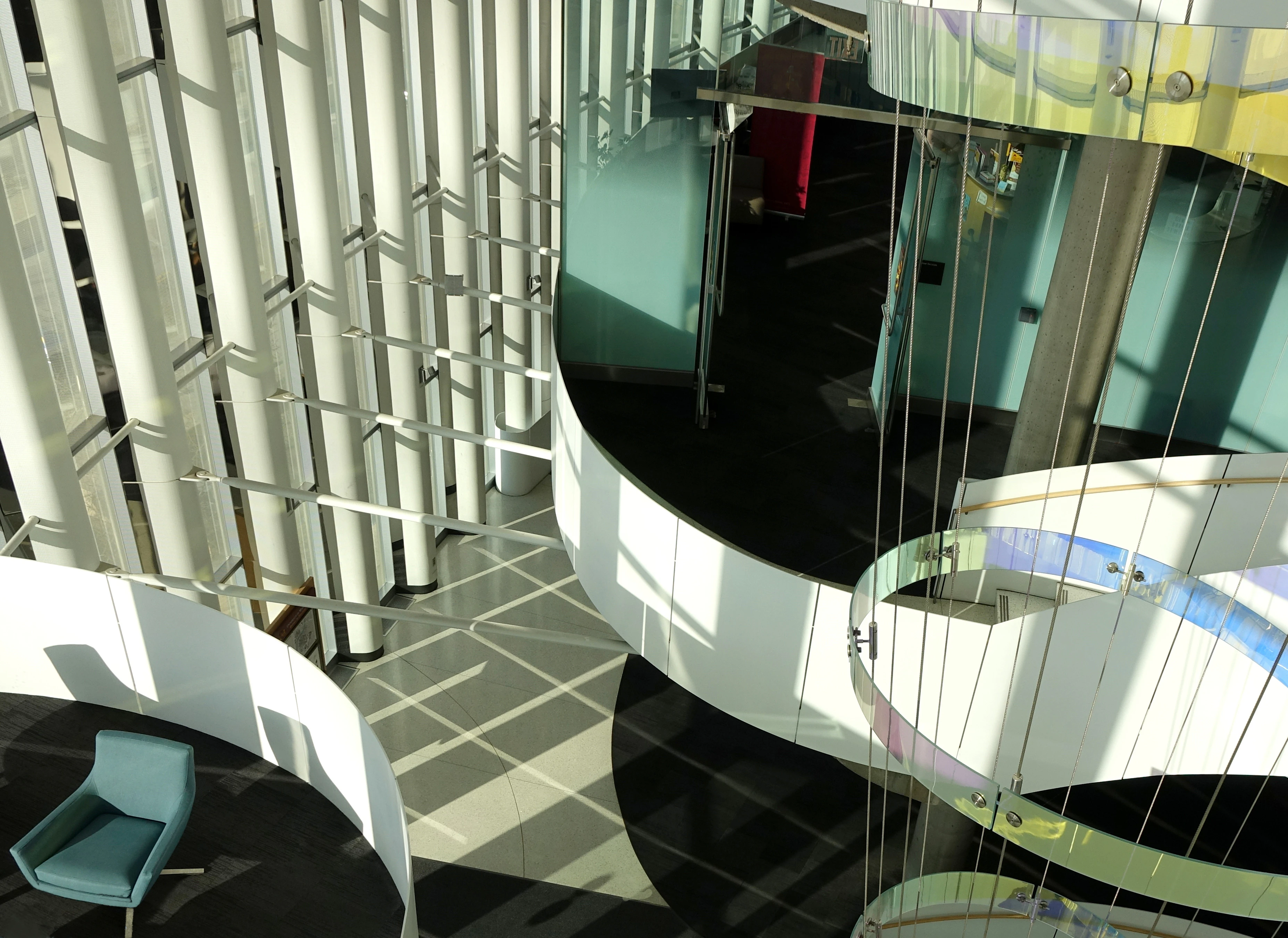
Someone Will Be With You Shortly
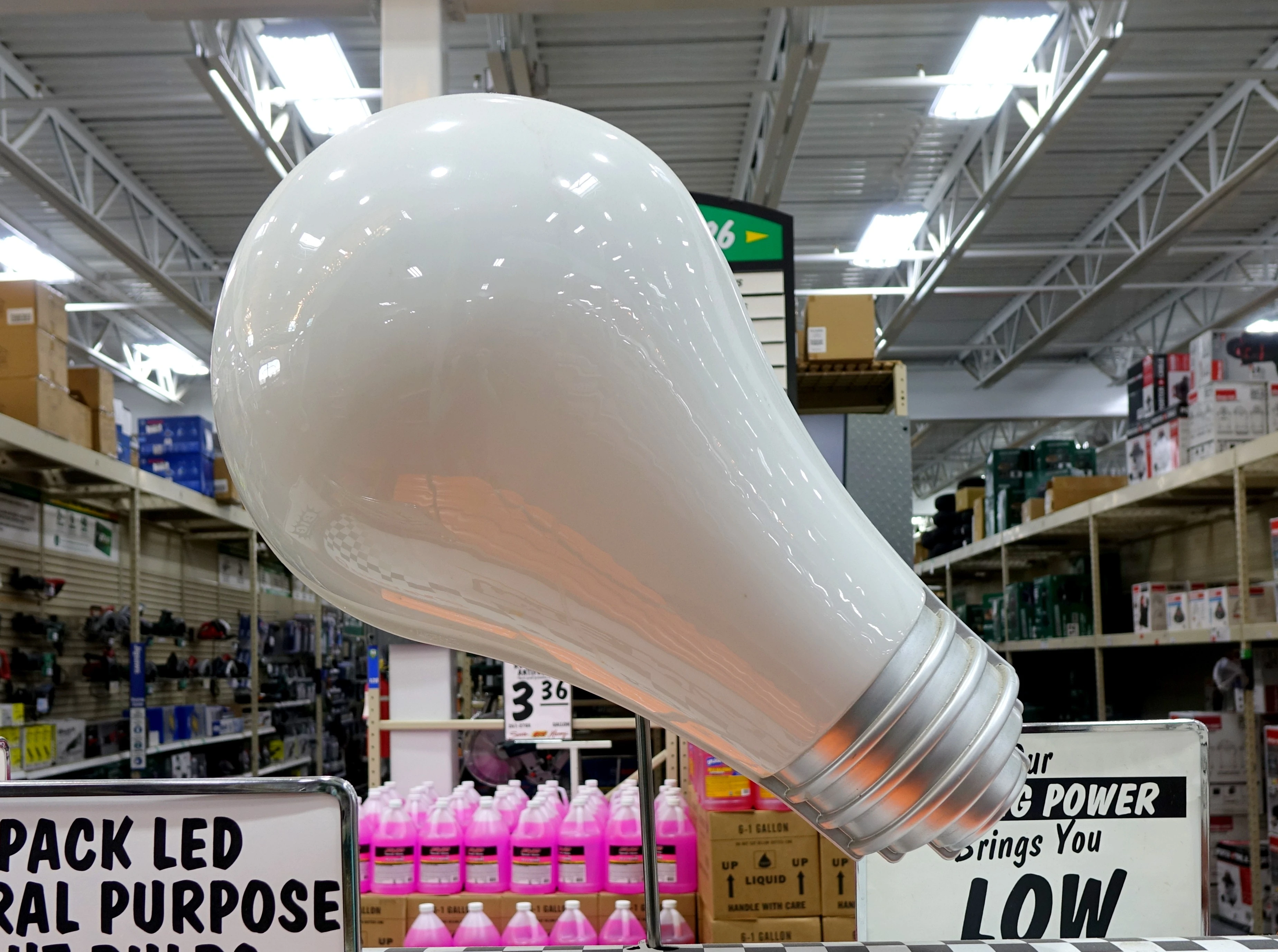
Bright Idea
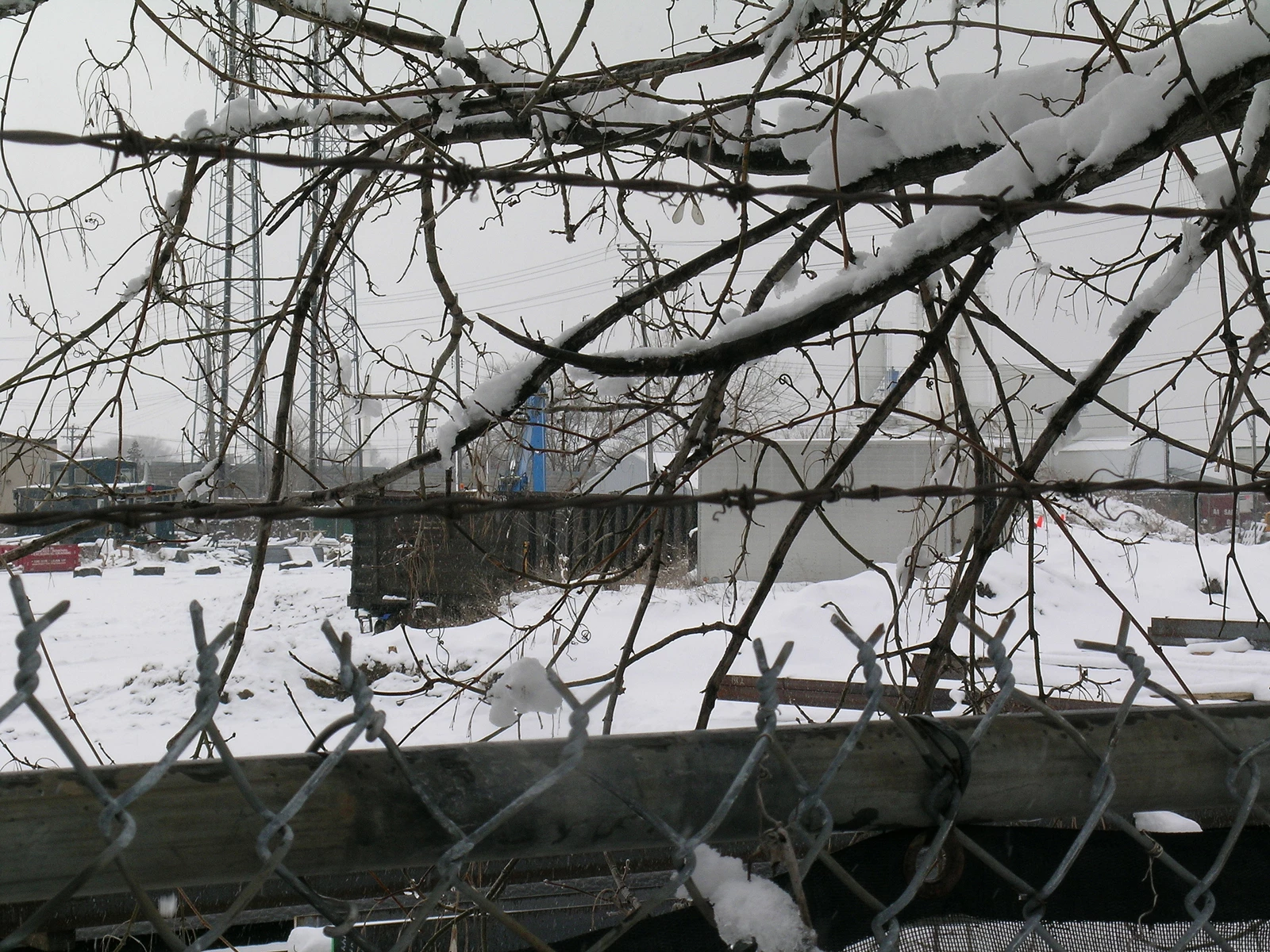
Top Secret
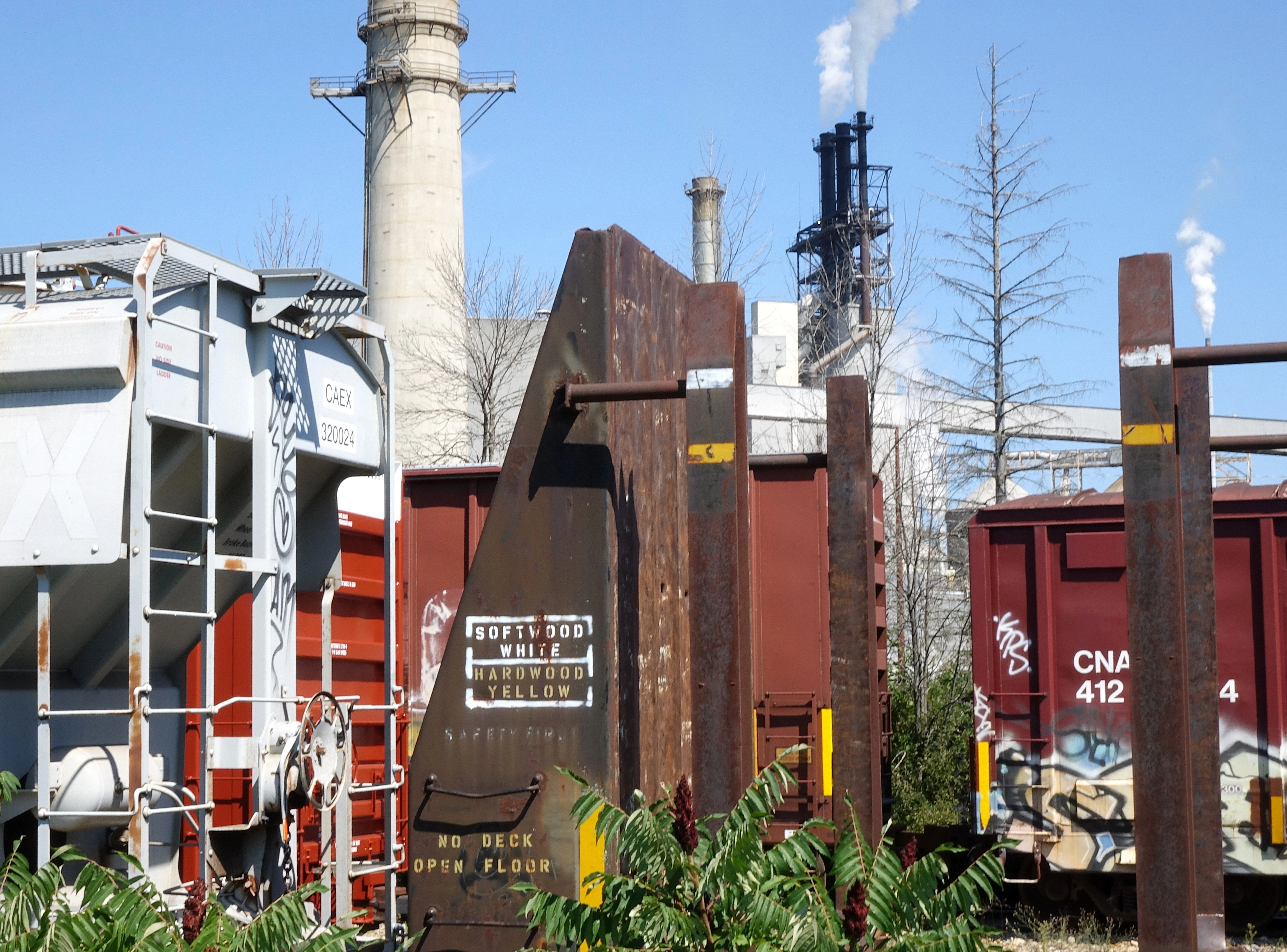
Escanaba
Spirituality
I went down to the tattoo parlor two blocks away from my house. This was in the afternoon. After going in, I was asked to sign a document attesting that I was sober; I was, so I signed. Then they asked me if I wanted to look in the book of sample tattoos. I said, “No.” “What do you want then?” they asked me. “I want a picture of God on my back,” I said. “You need to talk to the artist,” they said. He worked on me for several hours. The pain was beyond description, excruciating. It was nightfall when he finished. I didn’t want to see the tattoo, but I paid them what they asked for. I still haven’t seen the tattoo, but my girlfriend has seen it and told me under no circumstances ever to look in a mirror. She can’t describe it. The tattoo has started to itch. I can feel it burning. I want to scratch it but I know I shouldn’t. Sometimes at night my shirts have blood on them. Because of all the blood on my shirts, I’d like to remove the tattoo, but like so much else, it’s part of me now.
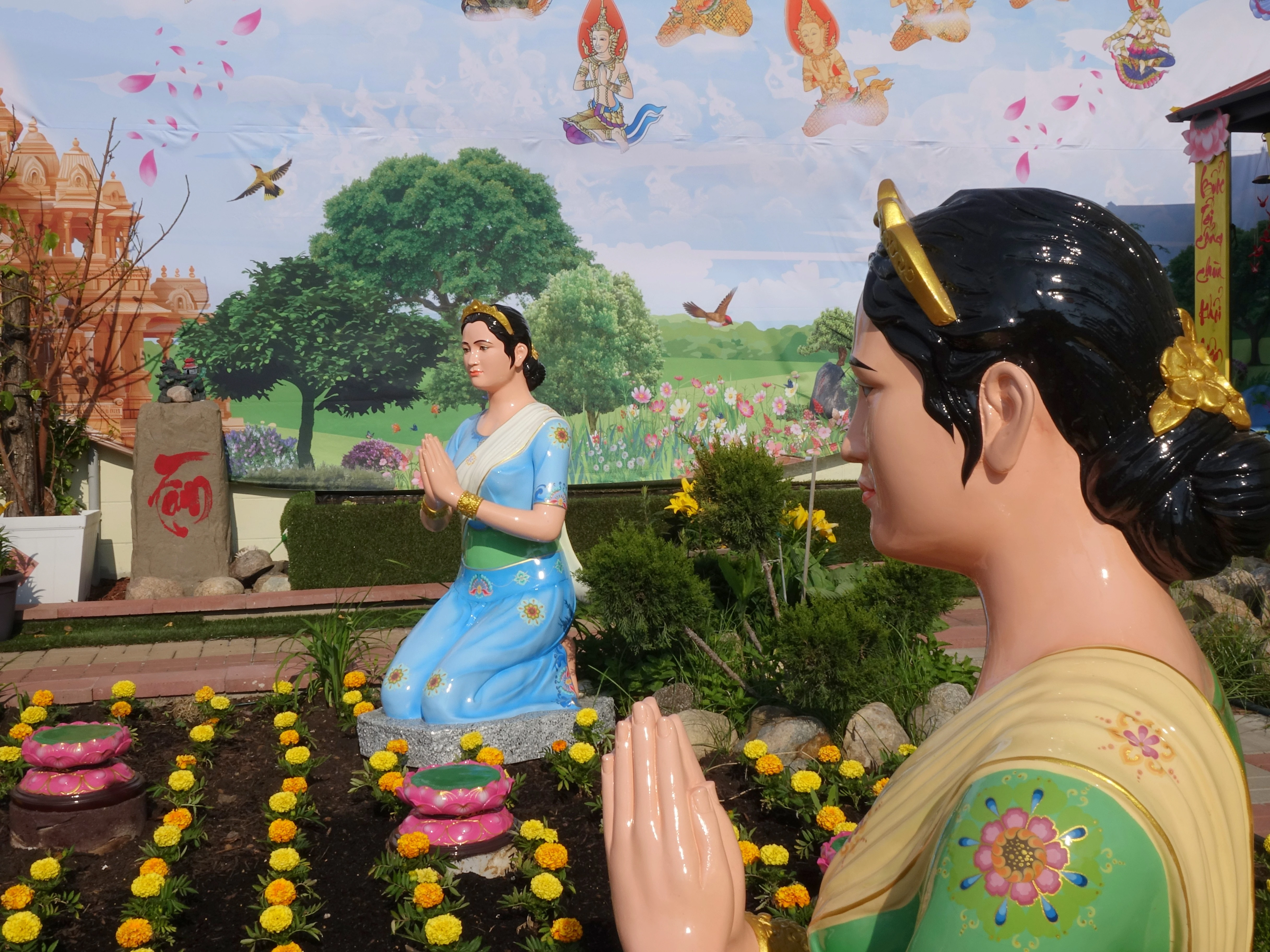
Path to Enlightenment
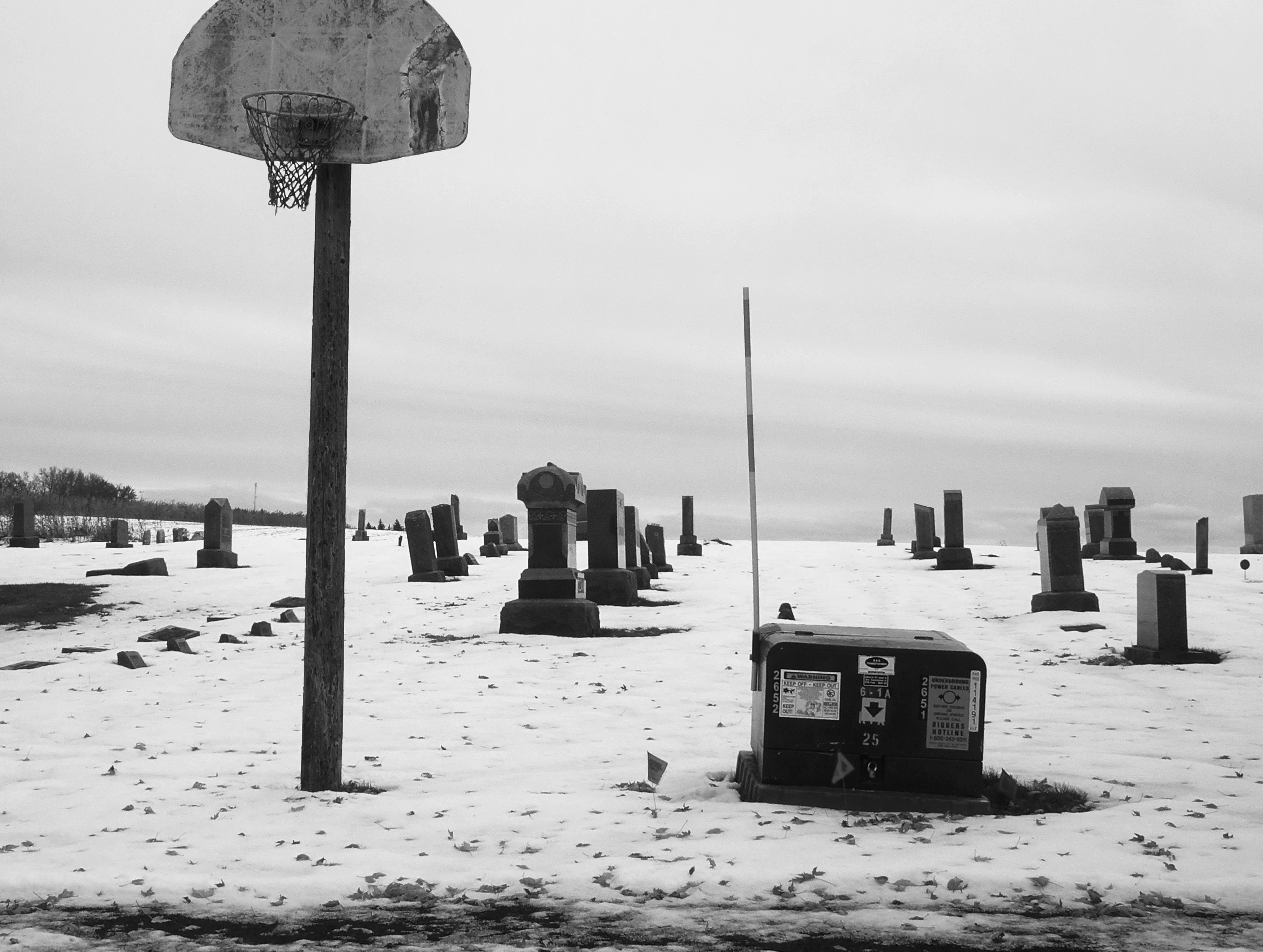
Long Shot
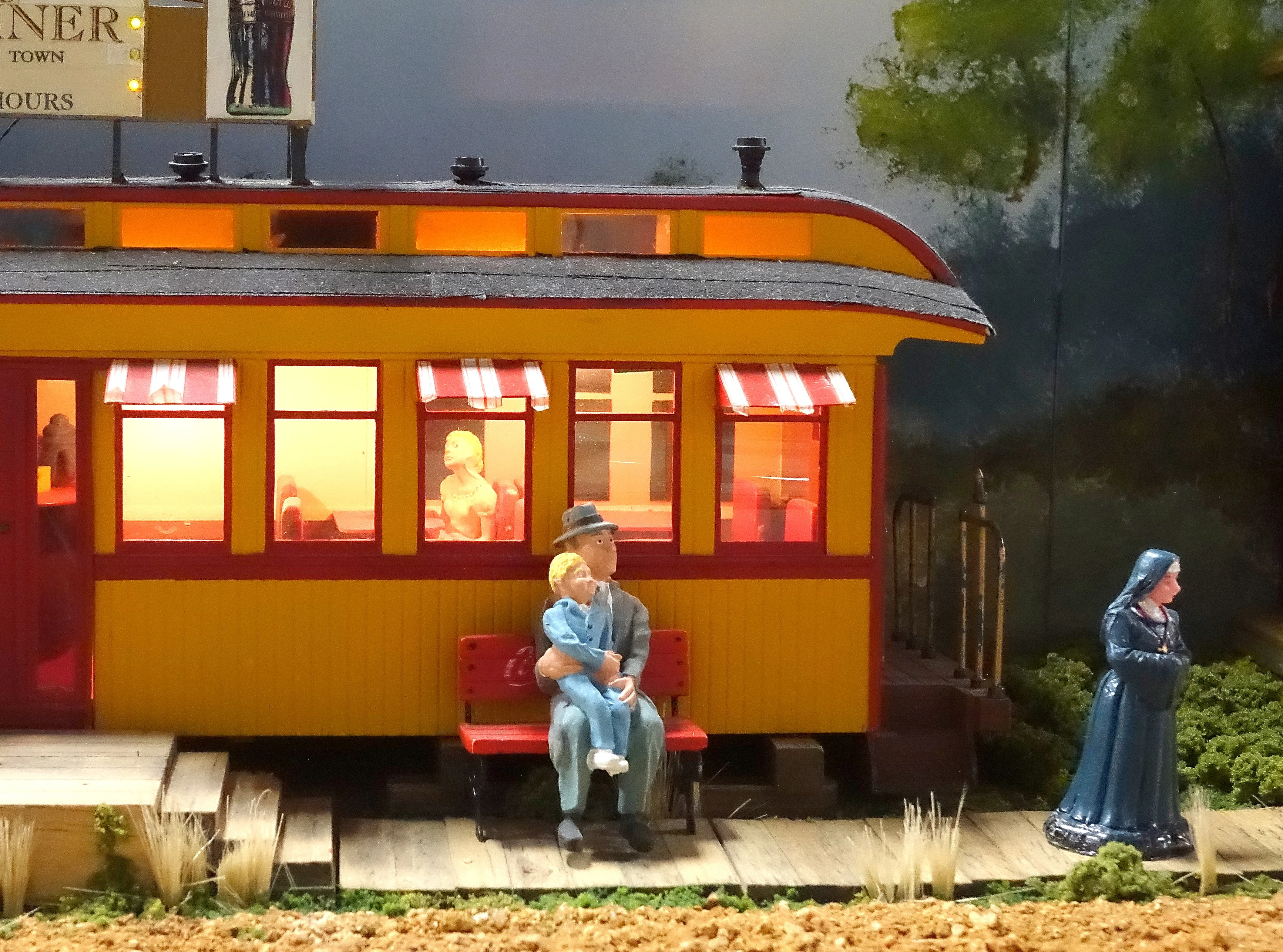
The Secret

Charity
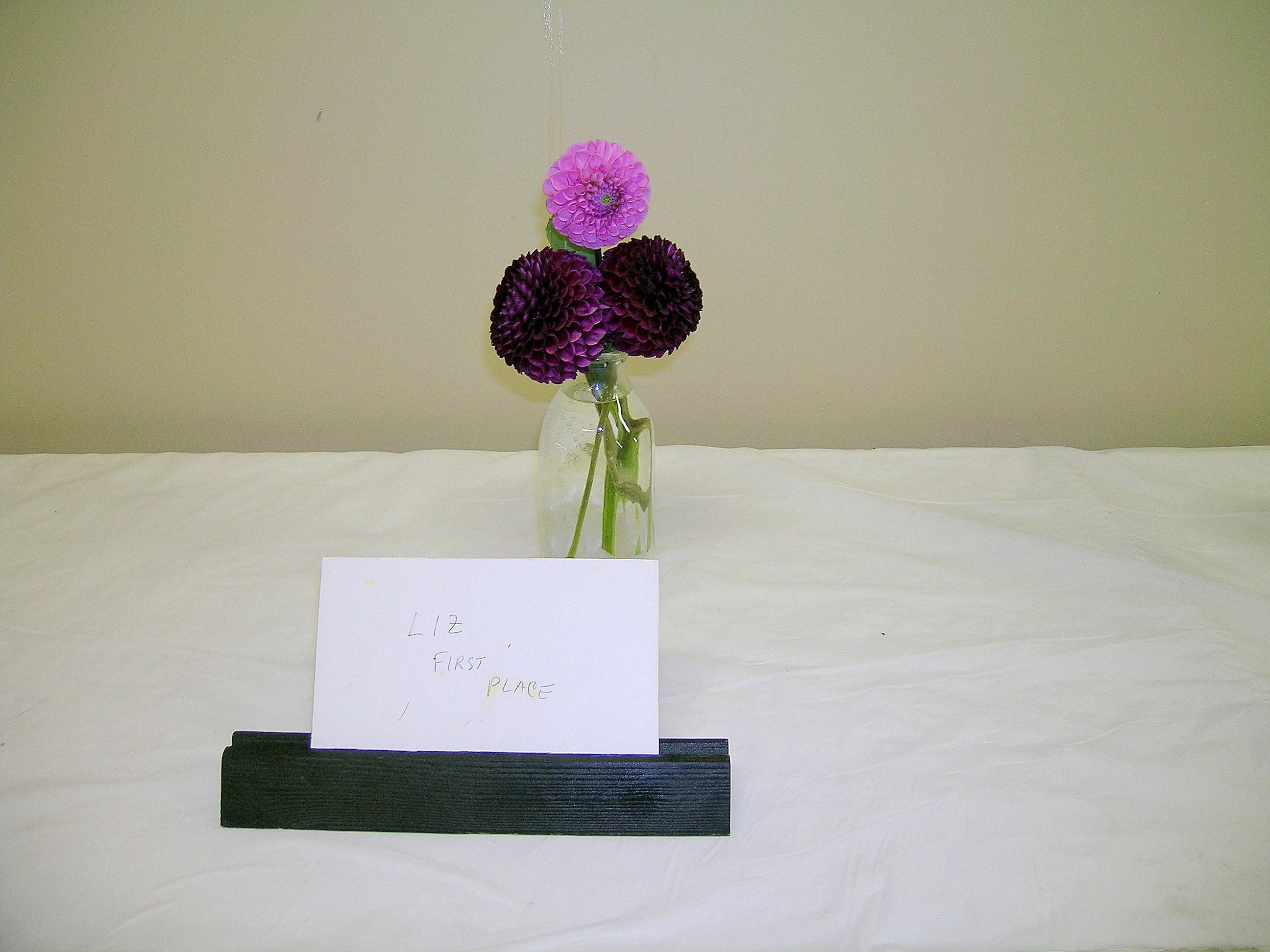
Humility
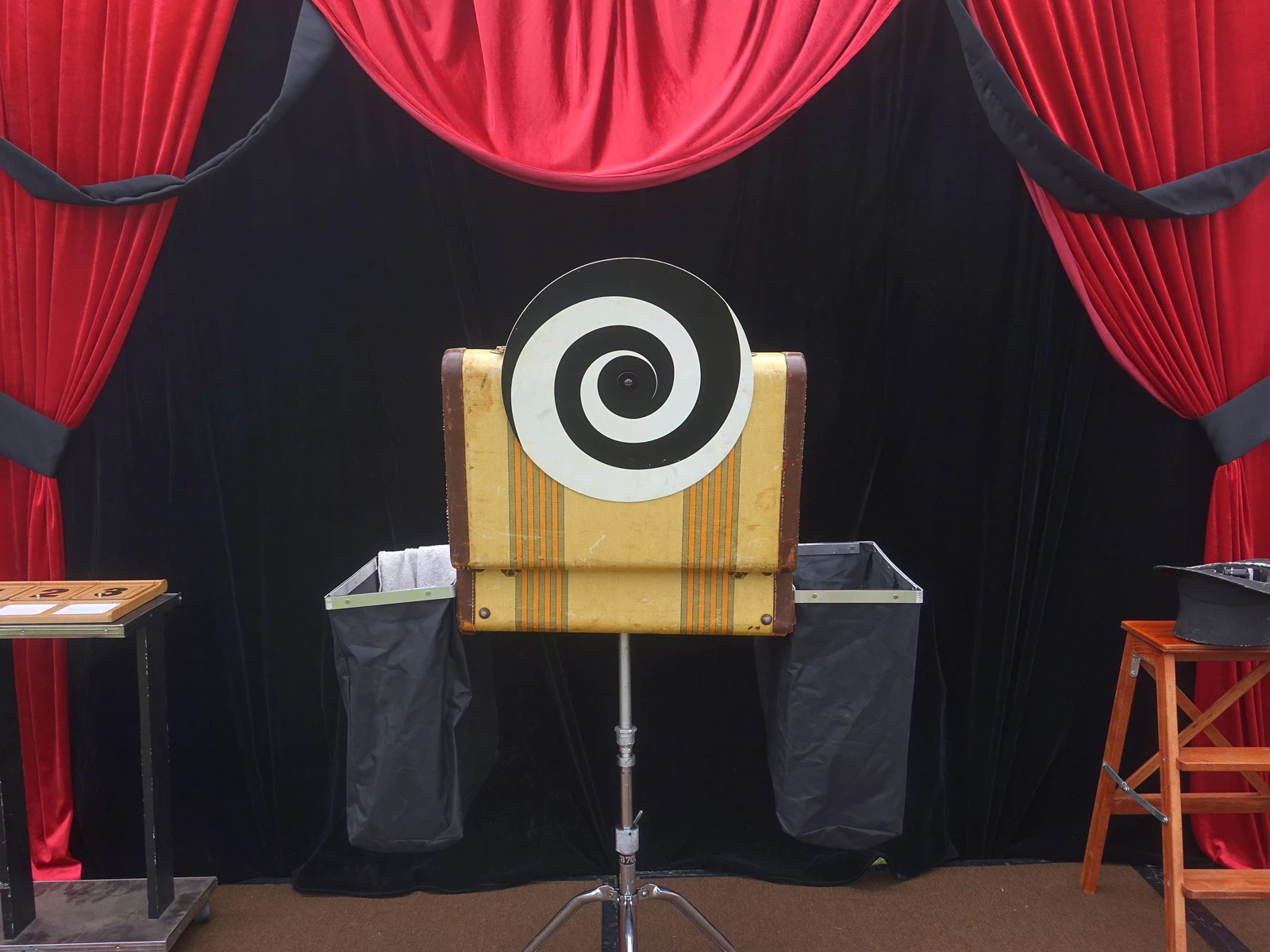
You're Getting Sleepy
Them That's Got
When the new potato extractor arrived, we threw out the no-longer-necessary Food Cruiser. We needed the counter room in the kitchen, after all, and then, for the outside, we invested in the Fitness Whipster (big discount!) and set it up next to the serenity pool. We're toned and fit now, thanks, and looking years younger. But then we had to re-wire the terrace for 220 volts, with the automatic shut-off in case of electrocution. At nightfall some undesirables stole our prize millennial orchids, for crying out loud, so we had to install more fencing, high enough to deter giant criminal-mechanicals and what-have-you. The front door has four locks and a spring-loaded booby-trapped knife-battery and electrified welcome mat to deter the unwary. The style of the house is Italianate Palazzo, with artisanal doorknobs straight from the famous Siena doorknob workshop. We are auditioning a lake to fill up the back forty. Come see us sometime, but, please, by invitation only. And remember: we have a new facial recognition module, earsplitting sirens, and private, very heavily armed, guards.

Showtime!
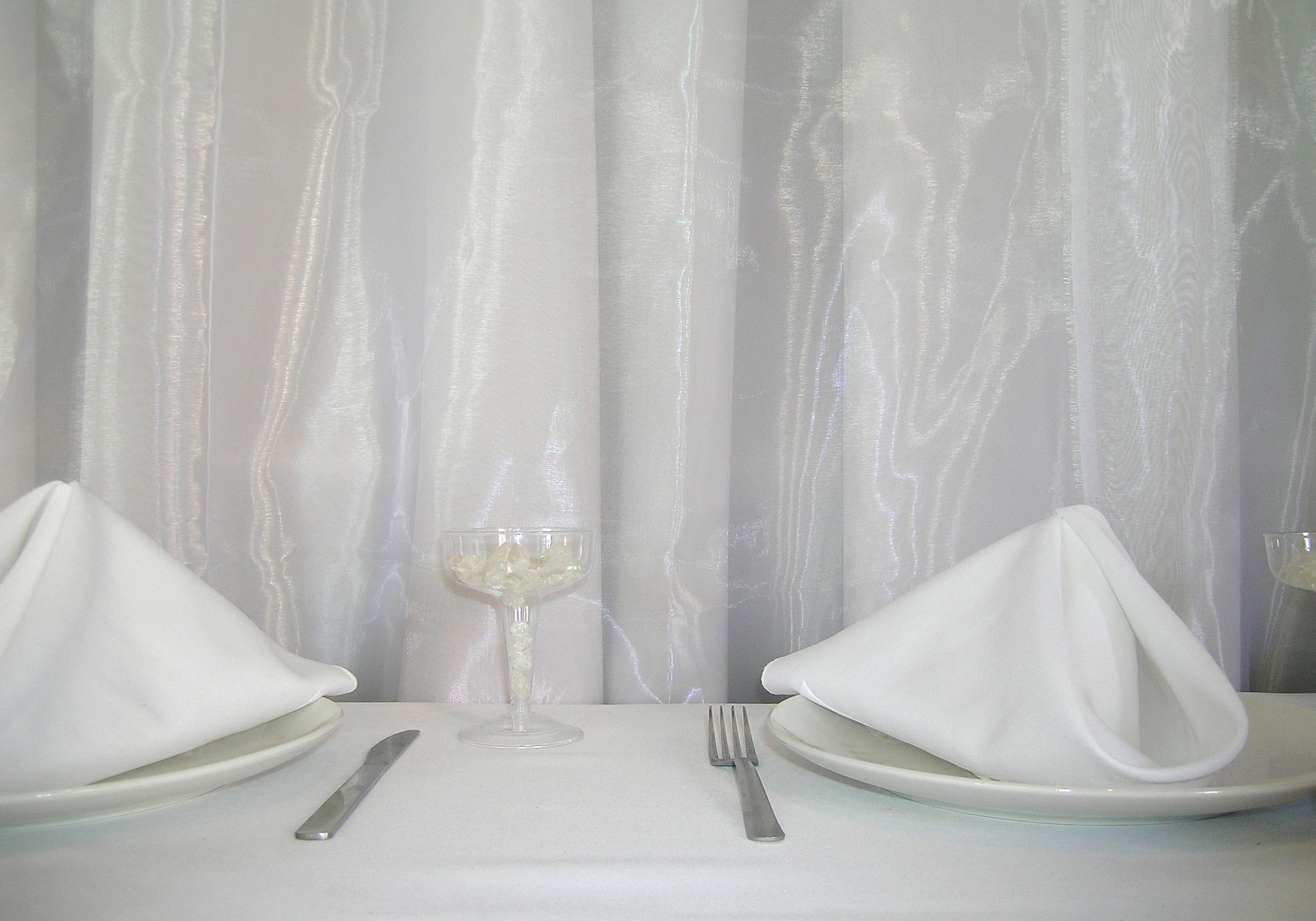
A Good Life
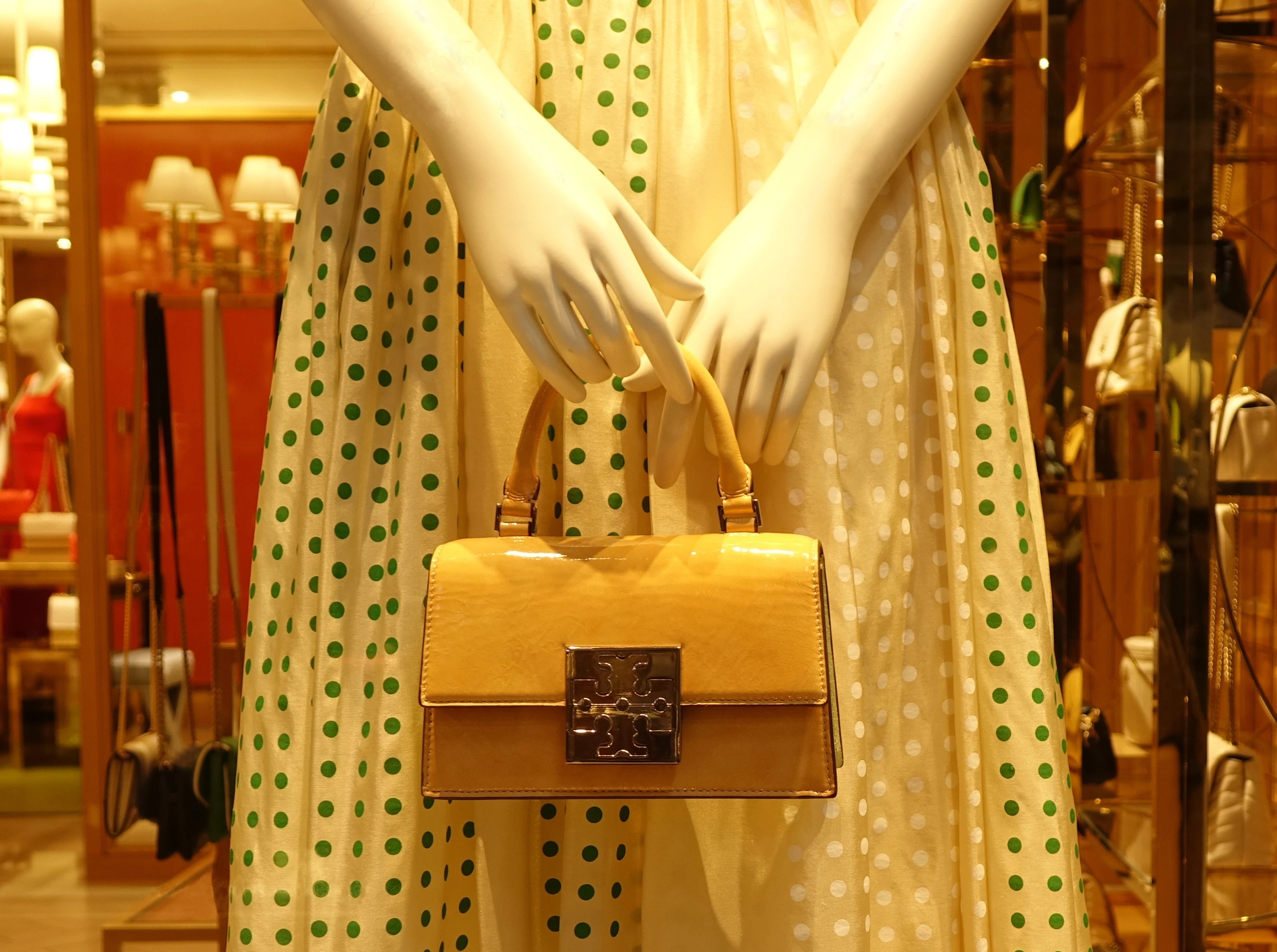
It's So You!
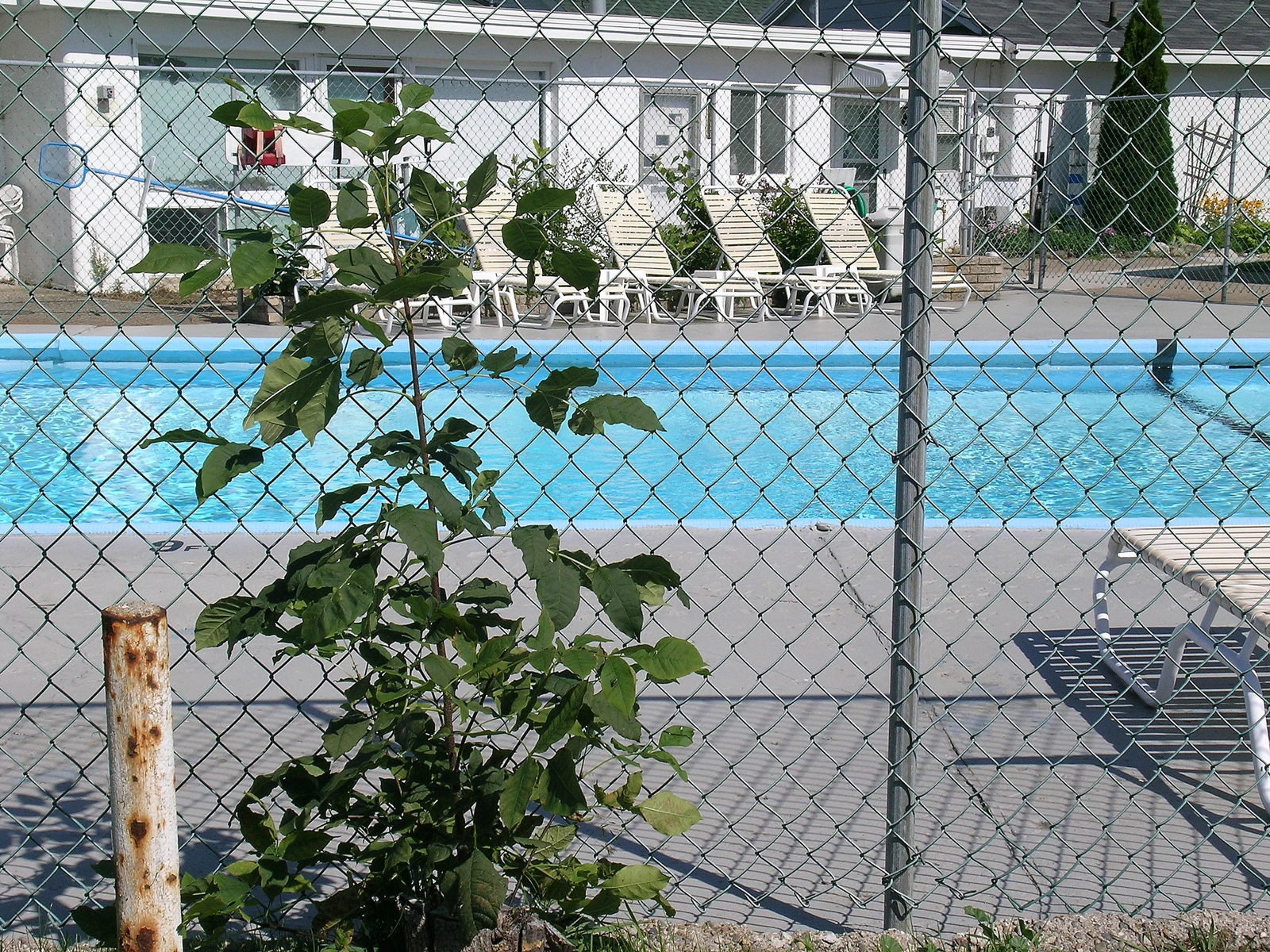
Swimming Pool
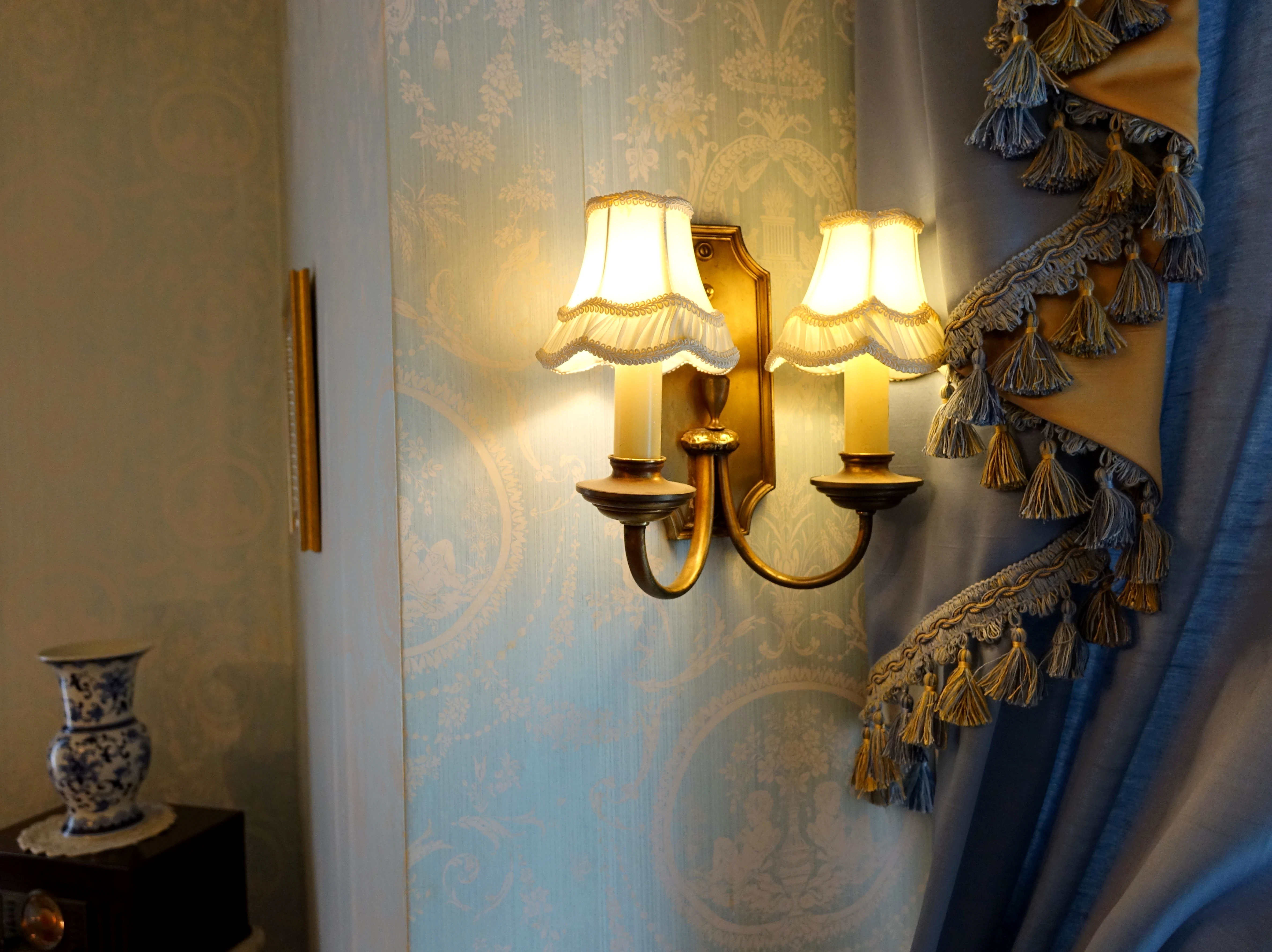
Top of the Stairs
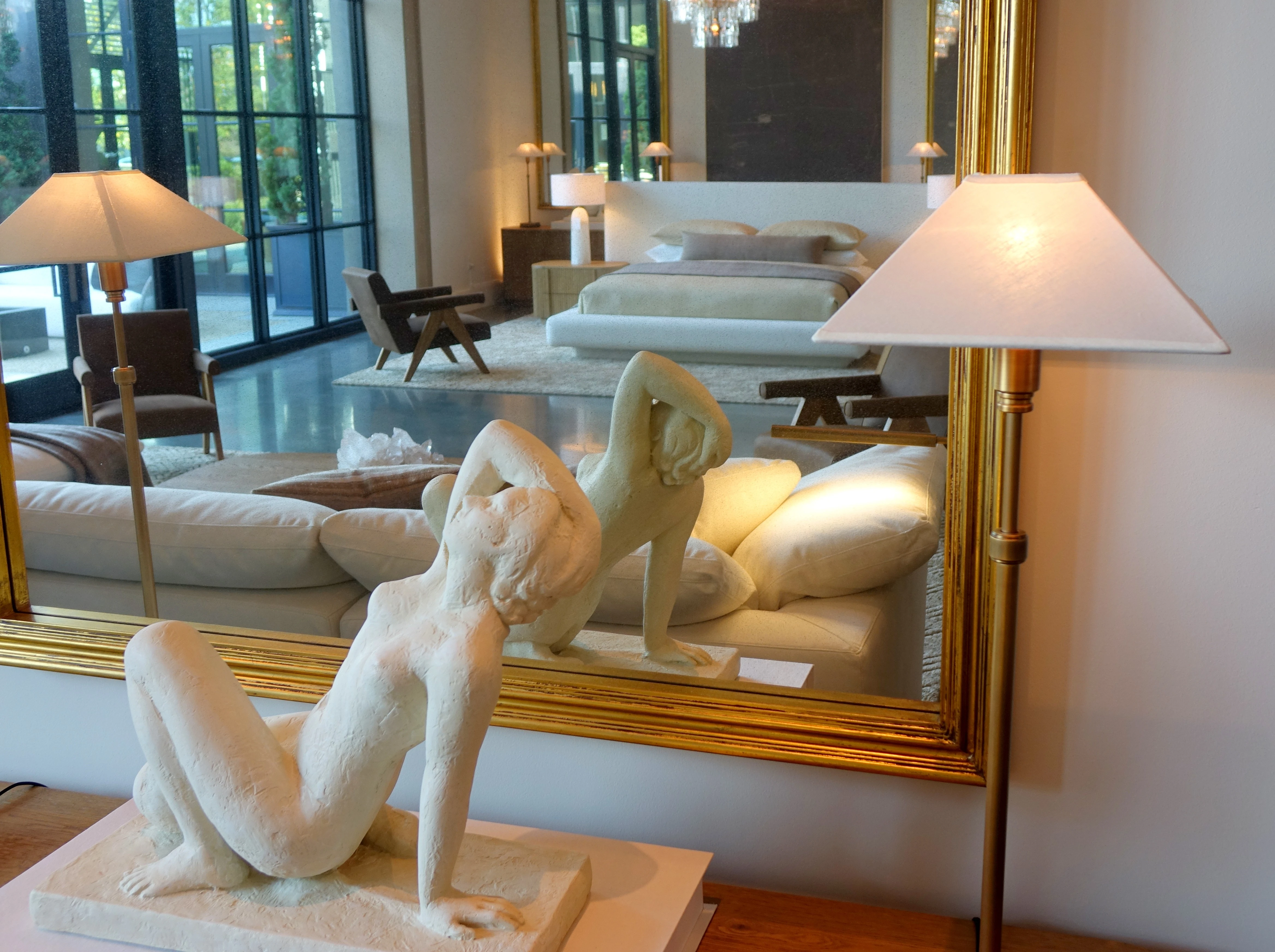
Make Yourself Comfortable
Wildlife
The first cave paintings outlined animals and men in blood colors: two-legged creatures and four-legged creatures. Which were which? Hard to tell. The caves were dark, and the men and the beasts sometimes seemed to merge, to become one hairy being. As a child, I woke up and saw animal faces somehow visible in my bedroom curtains and the wallpaper. Children feel a special affinity for creatures of the forest, wanting to live there, wanting to be friends, to feel the shiver of friendship from a speaking animal to a listening human: talking ducks, speechifying squirrels, melodious deer. But why do these ducks always lisp? Why do the deer shy away? Here the replica animals have been tamed by the time machine and do not move. They make themselves available for our contemplation. But they have lost the power of speech, and they are so, so tame that they will not notice you at all, and they stare into space as if their lives were over and their gentle hearts were removed and broken.
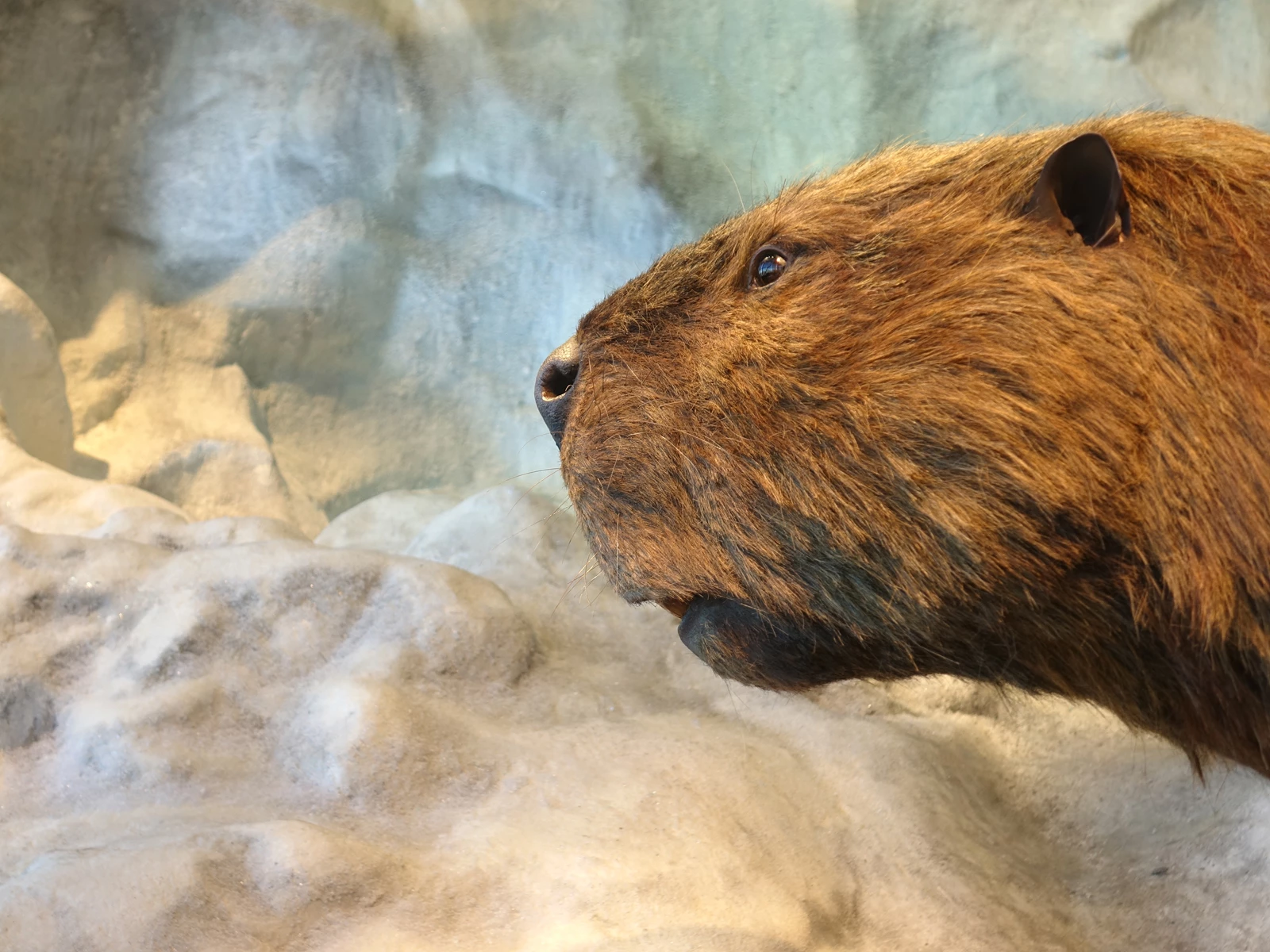
Overbite

Deer
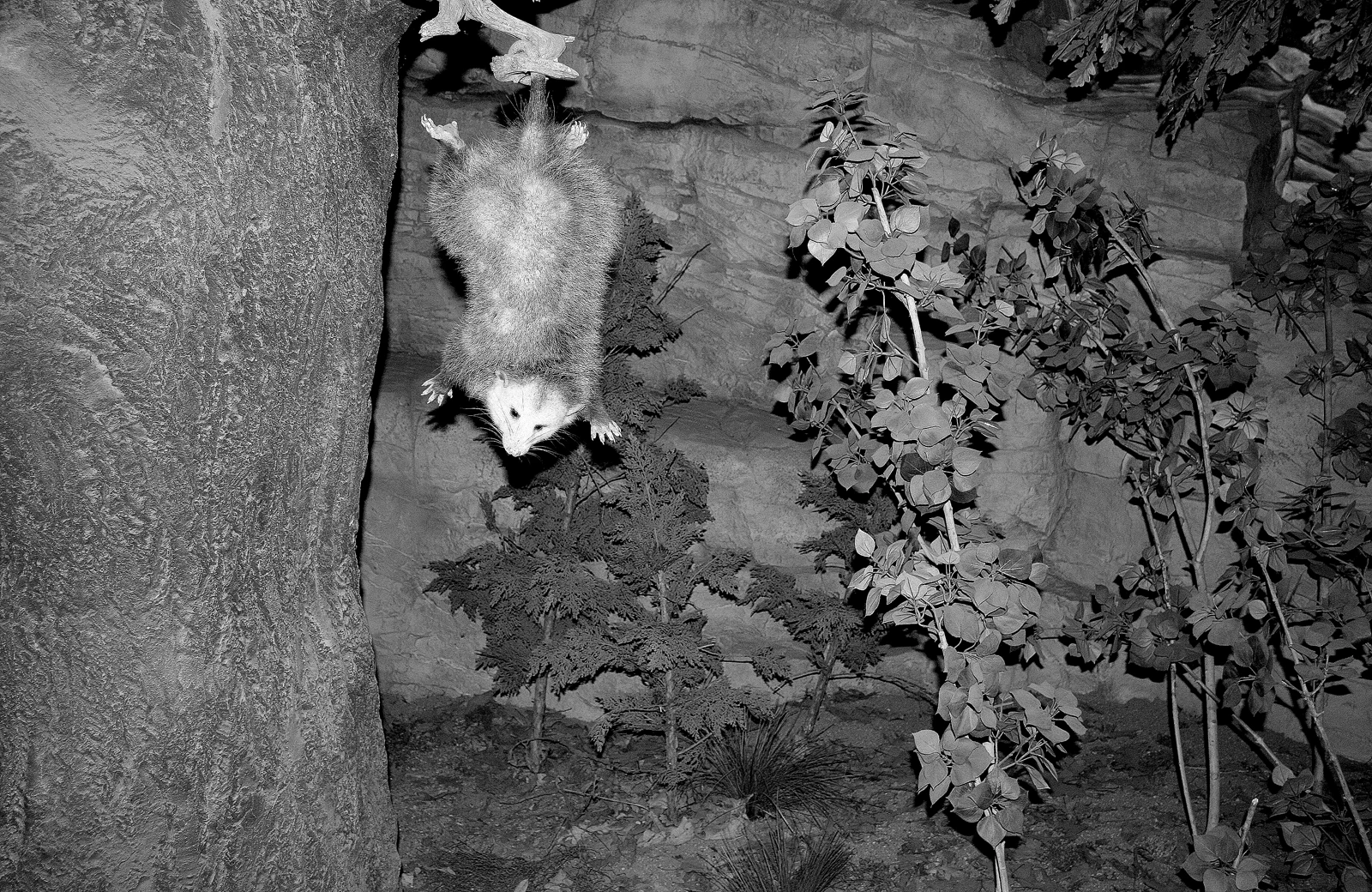
Possum
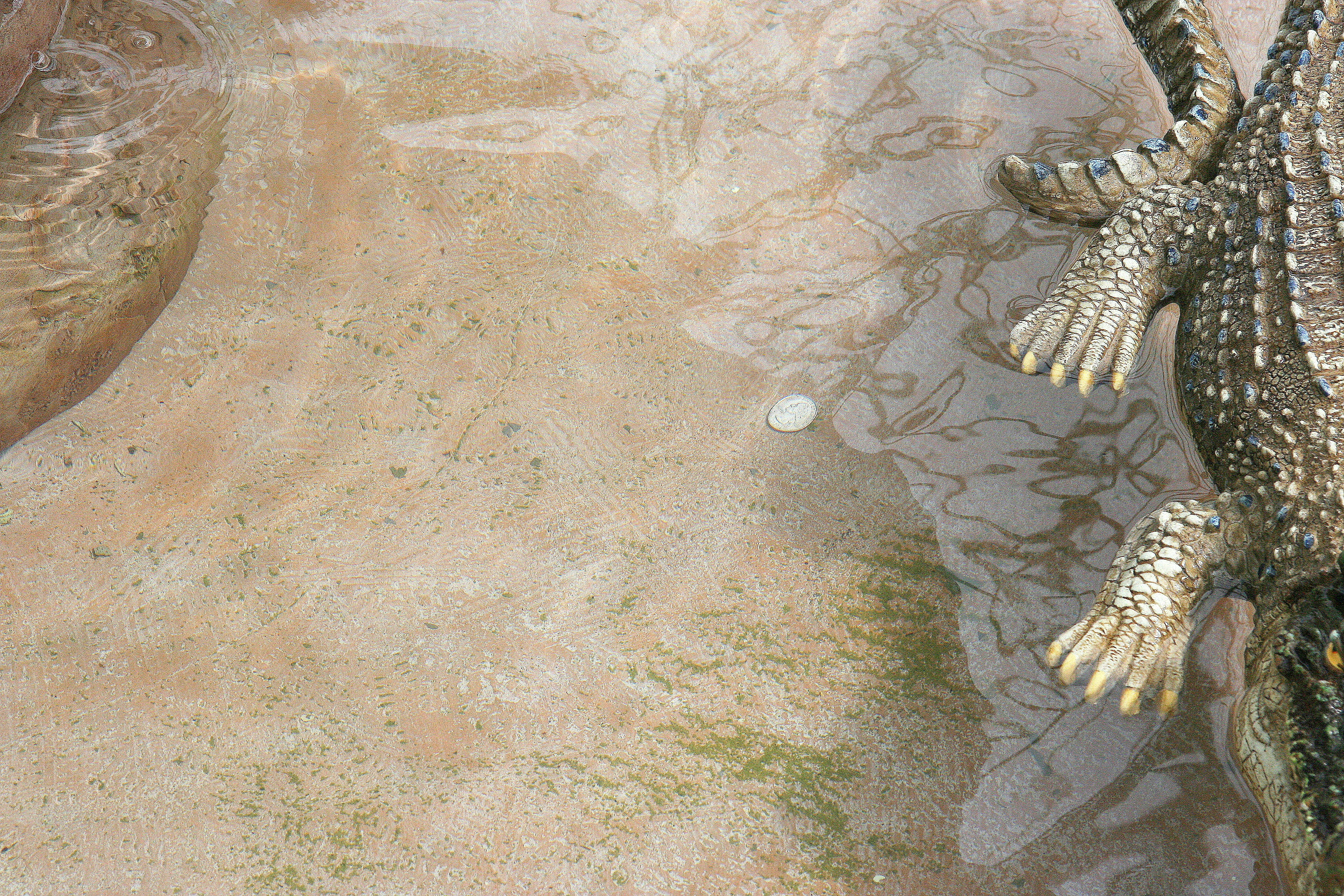
Risk
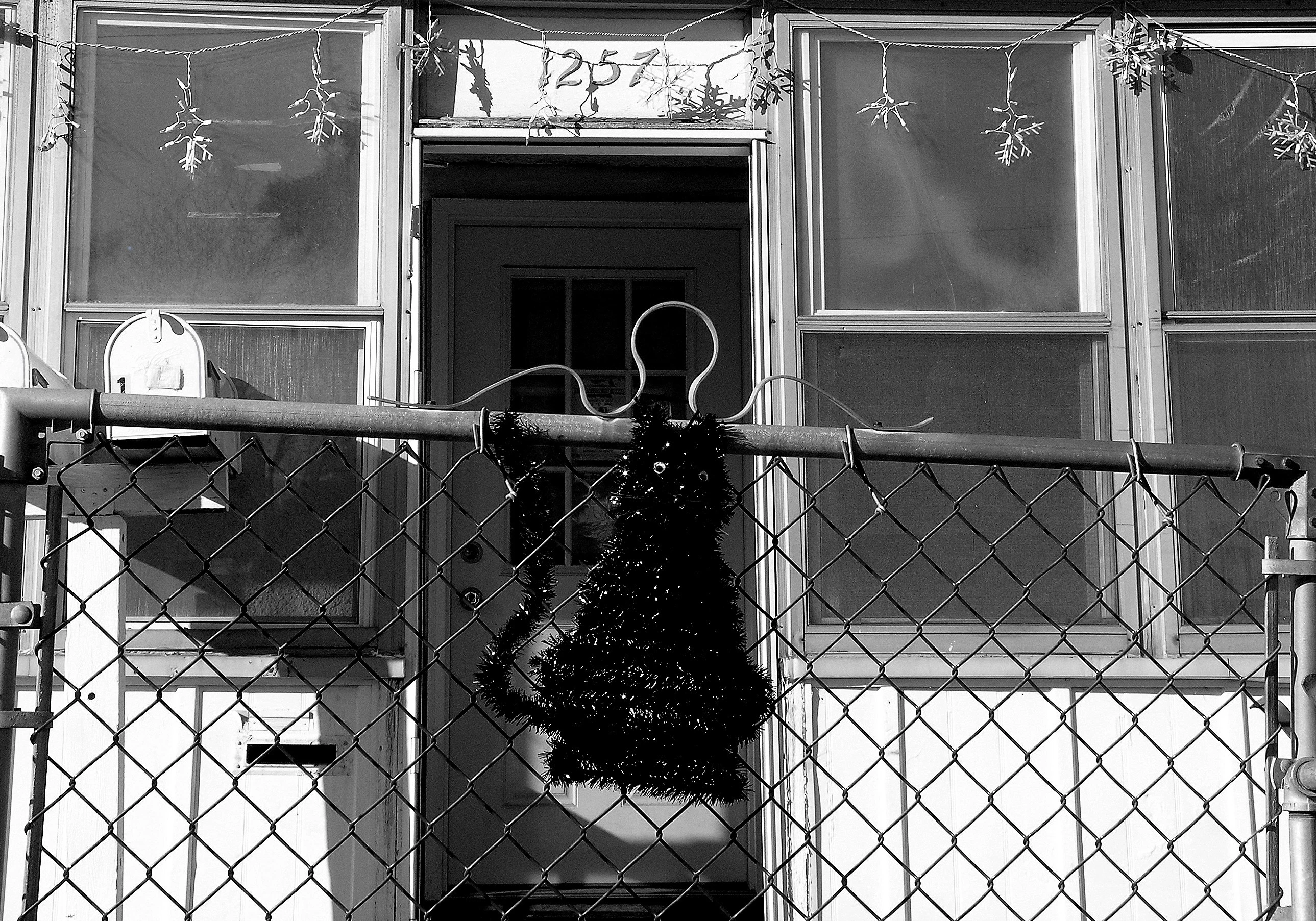
Black Cat
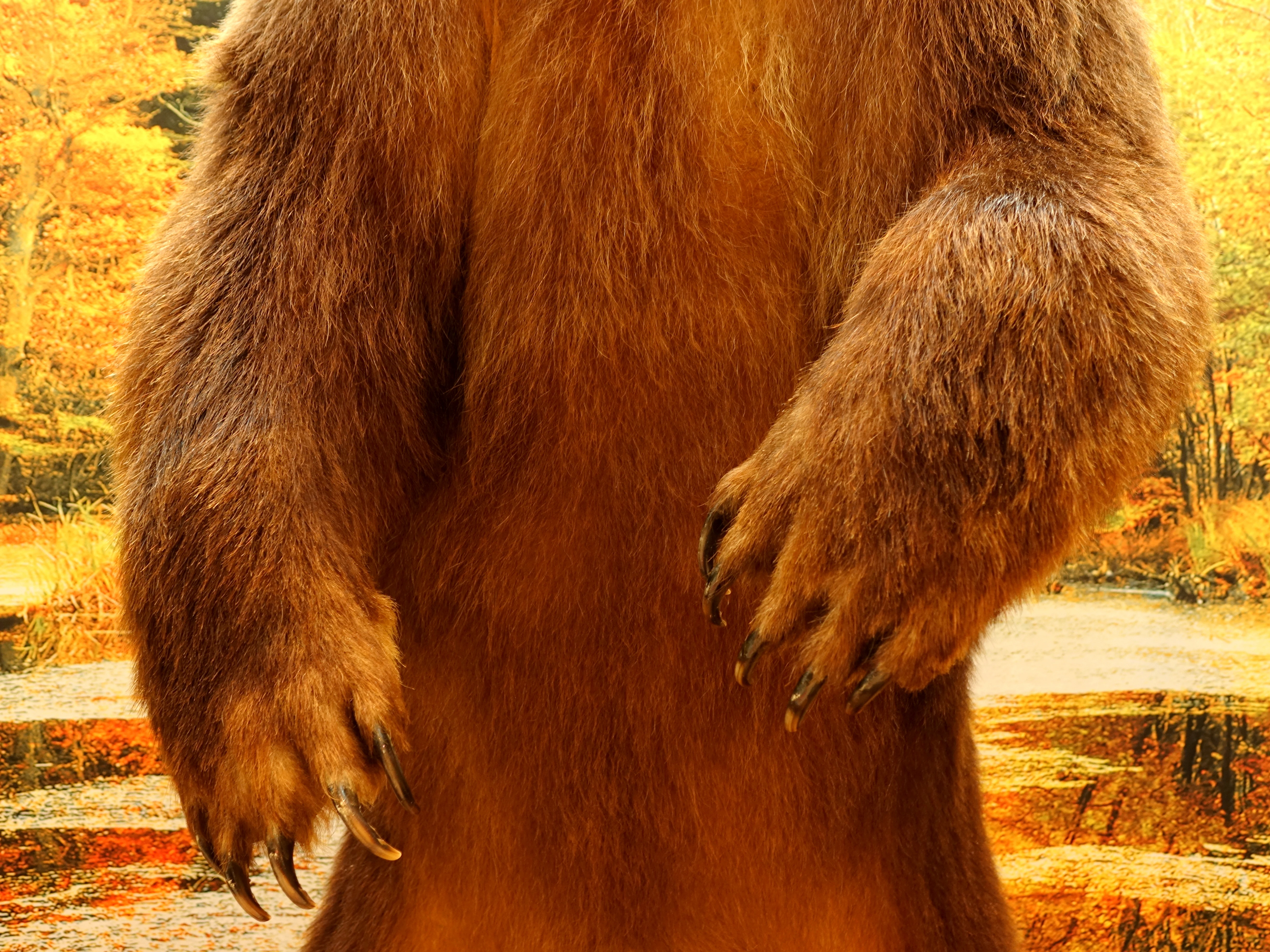
Lover
Joys and Sorrows
One night, Christmas Eve, the boy looks out the back window and sees, across the lake, three miles away, a house on fire. To get a good sighting of the burning house, the boy must stand next to the Christmas tree, at whose base are several presents wrapped in glittering paper and bright red (or green) ribbon. The boy is still young enough to be excited by Christmas—the cooking, the laughter, the food, the toys, everyone together, even the colored lights on the tree, bright colored lights outside in snow, in the darkness. It is a show. When he is older and must manage the show himself for the sake of children and grandchildren, he sees why the emergency rooms and ICUs fill up between Christmas and New Year's Eve. Joy, sorrow; life, death; light, darkness. Writing in Latin, the poet Lucretius says that we are glad to see the ship sinking in the distance, not because we take pleasure in the calamities of others, but because we are not on the ship ourselves. Not yet.

Pain
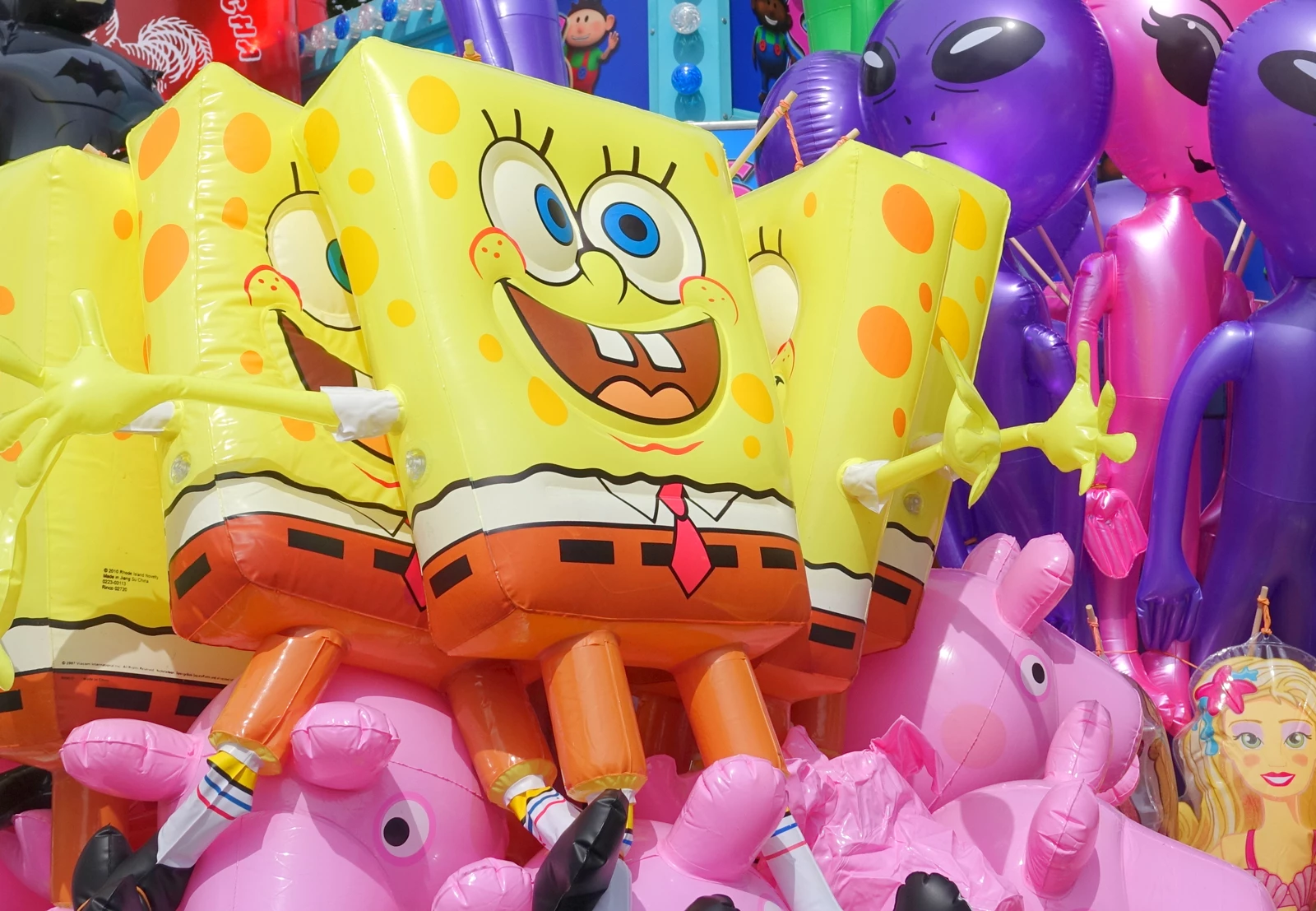
SpongeBob
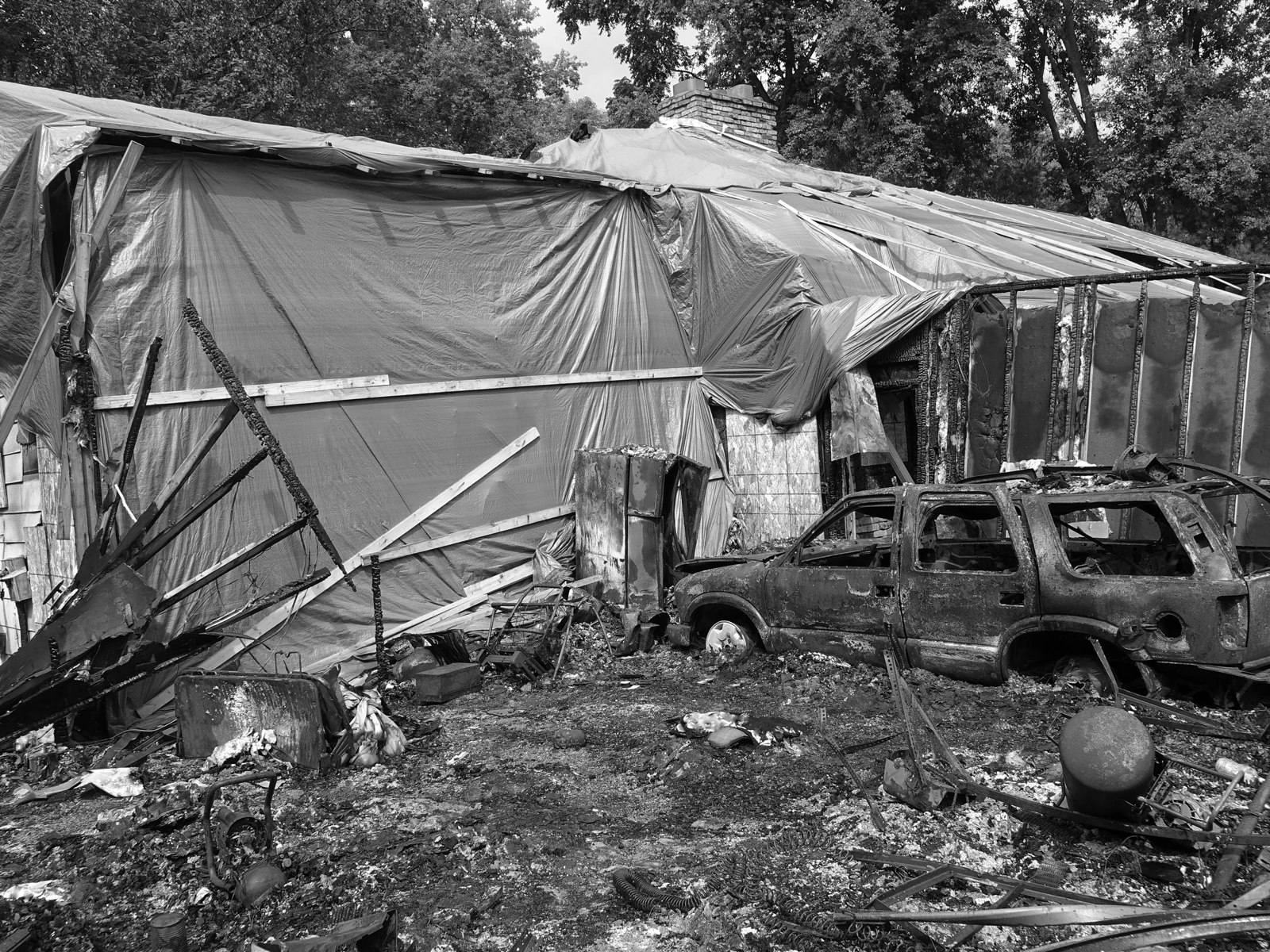
Bad Luck
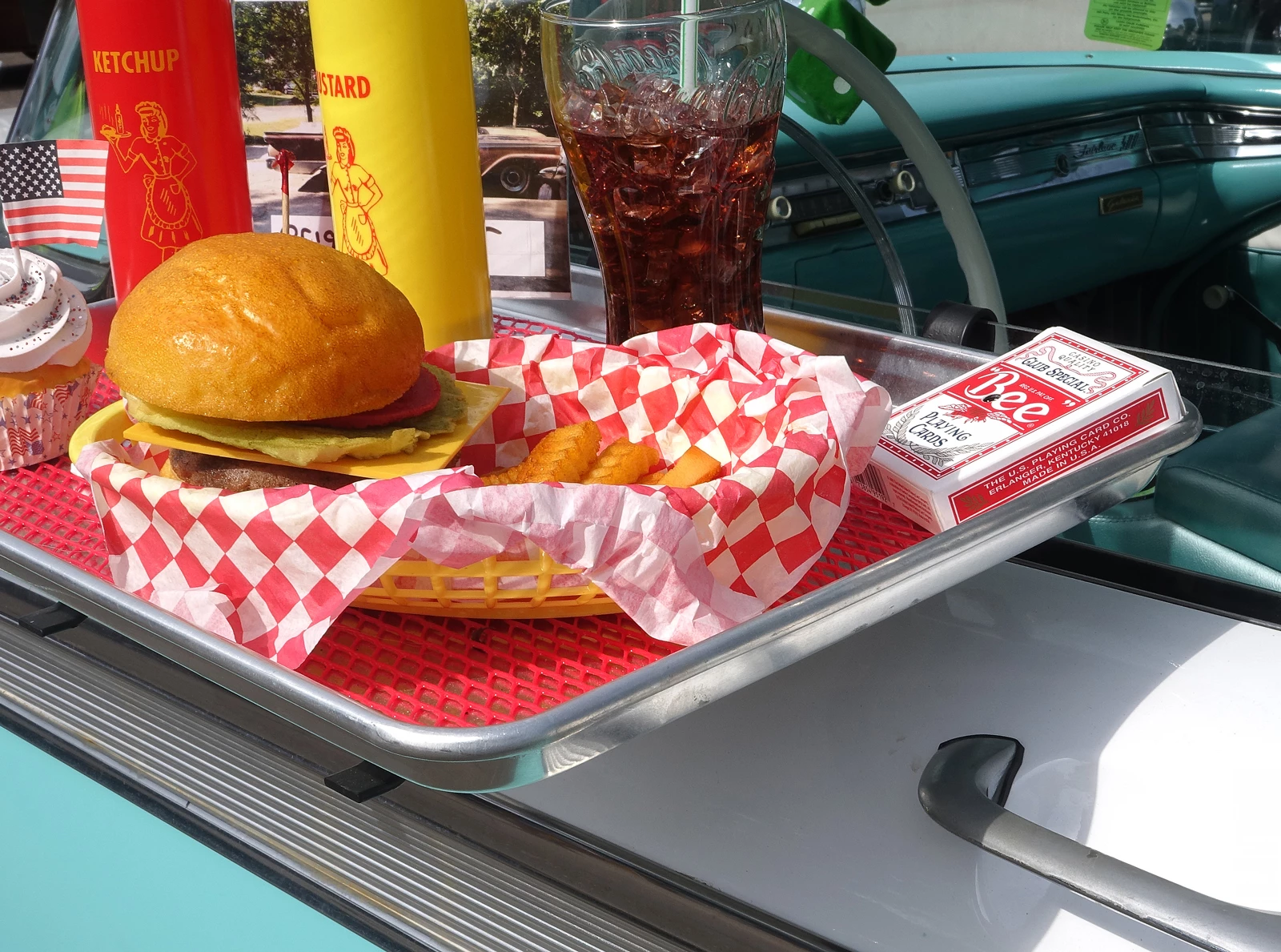
'57 Fairlane
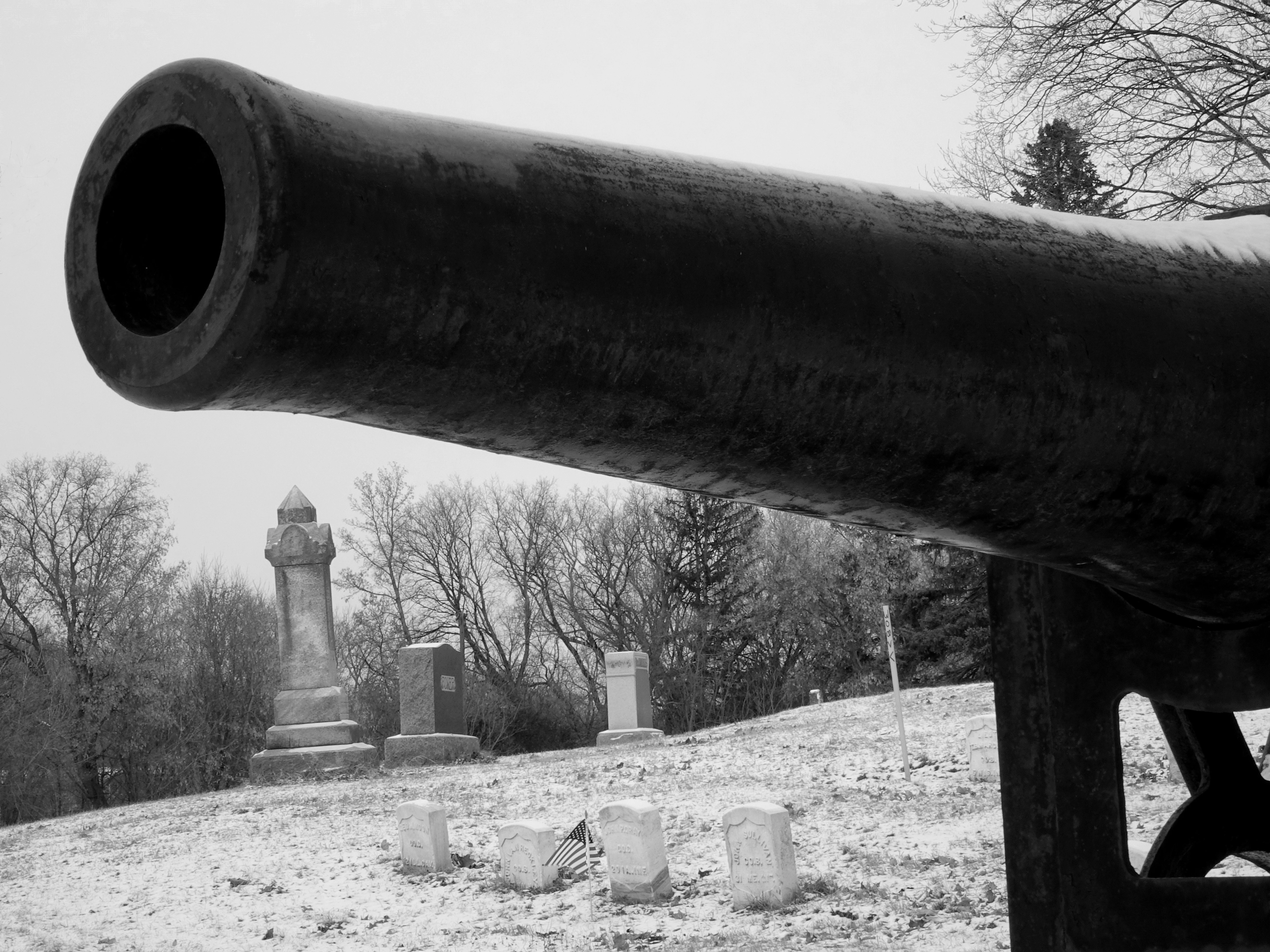
Put Up Again Thy Sword
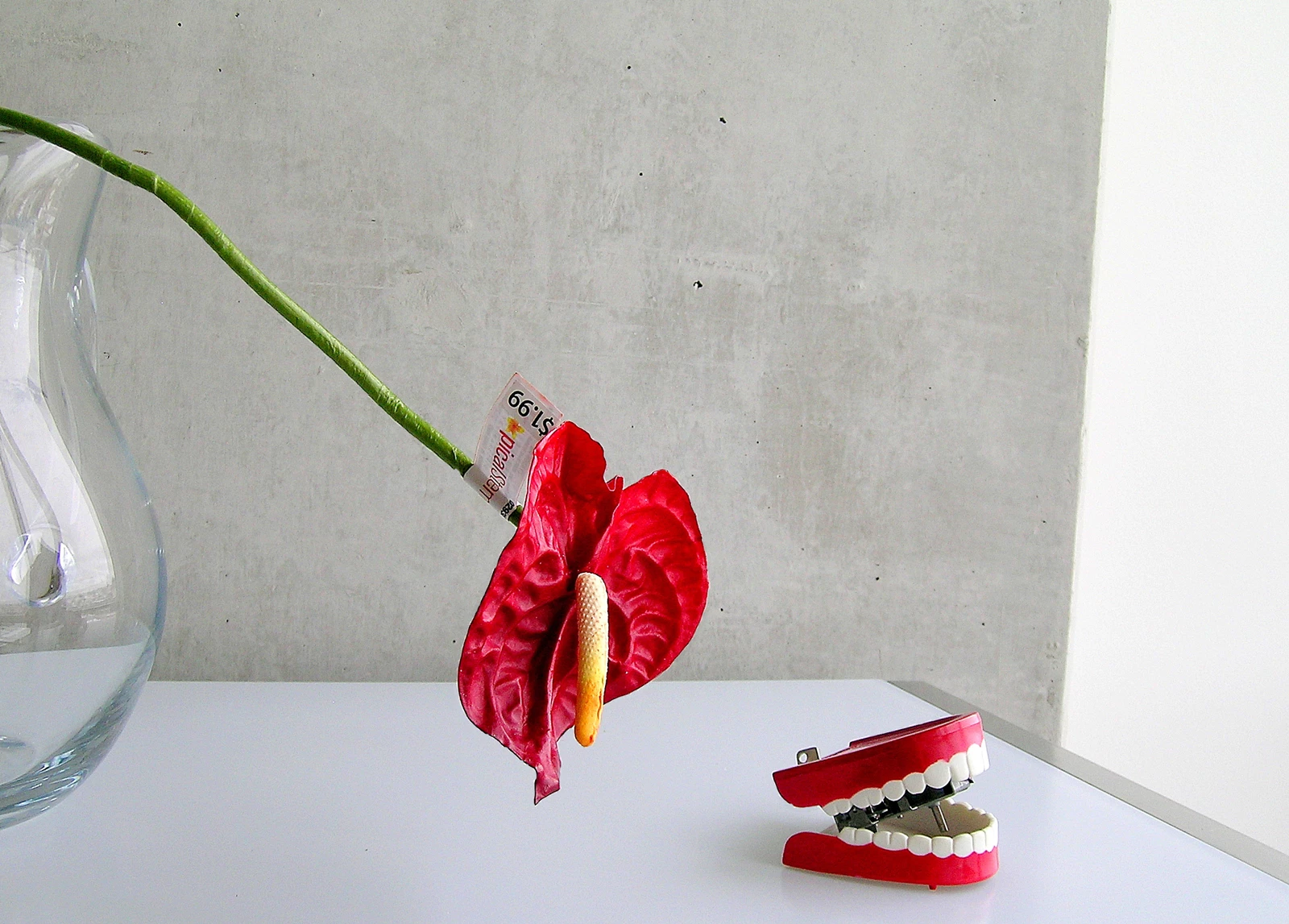
Time Flies
John Kohring
John Kohring grew up in Michigan and began his career making large, abstract paintings in a gestural style. In 2006 he began to concentrate exclusively on photography. Using a light-weight digital camera that he carries on long walks, he can take photographs with the same spontaneity that he enjoyed when letting the paint fly in his studio.
Charles Baxter
Charles Baxter was Edelstein-Keller Professor in Creative Writing at the University of Minnesota. He grew up in Minnesota and is the author of poetry, essays, books on the craft of writing, and several novels and collections of short stories, including The Sun Collective, There's Something I Want You to Do, Gryphon, and The Feast of Love. He has a long-standing interest in the relationship between words and visual art.